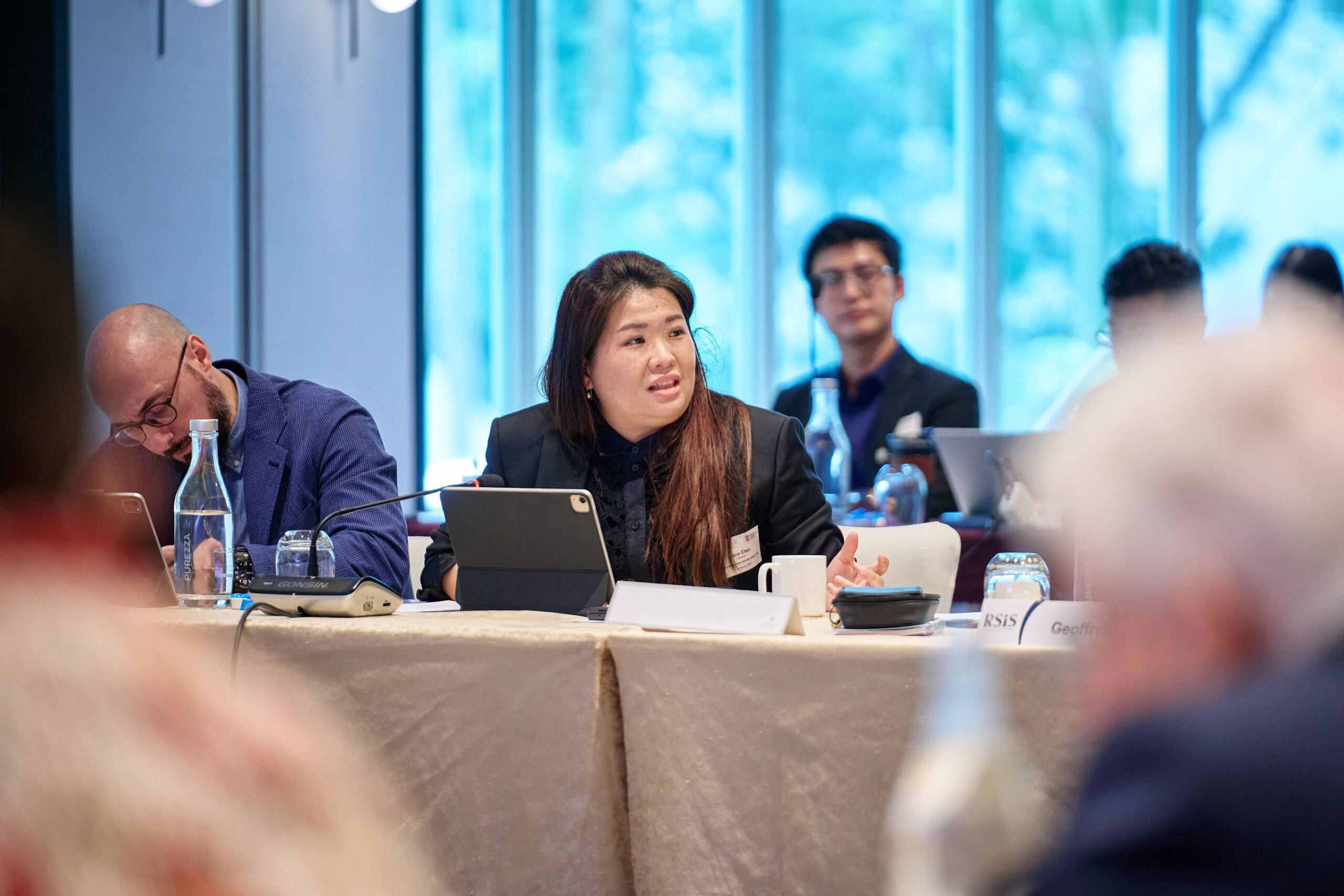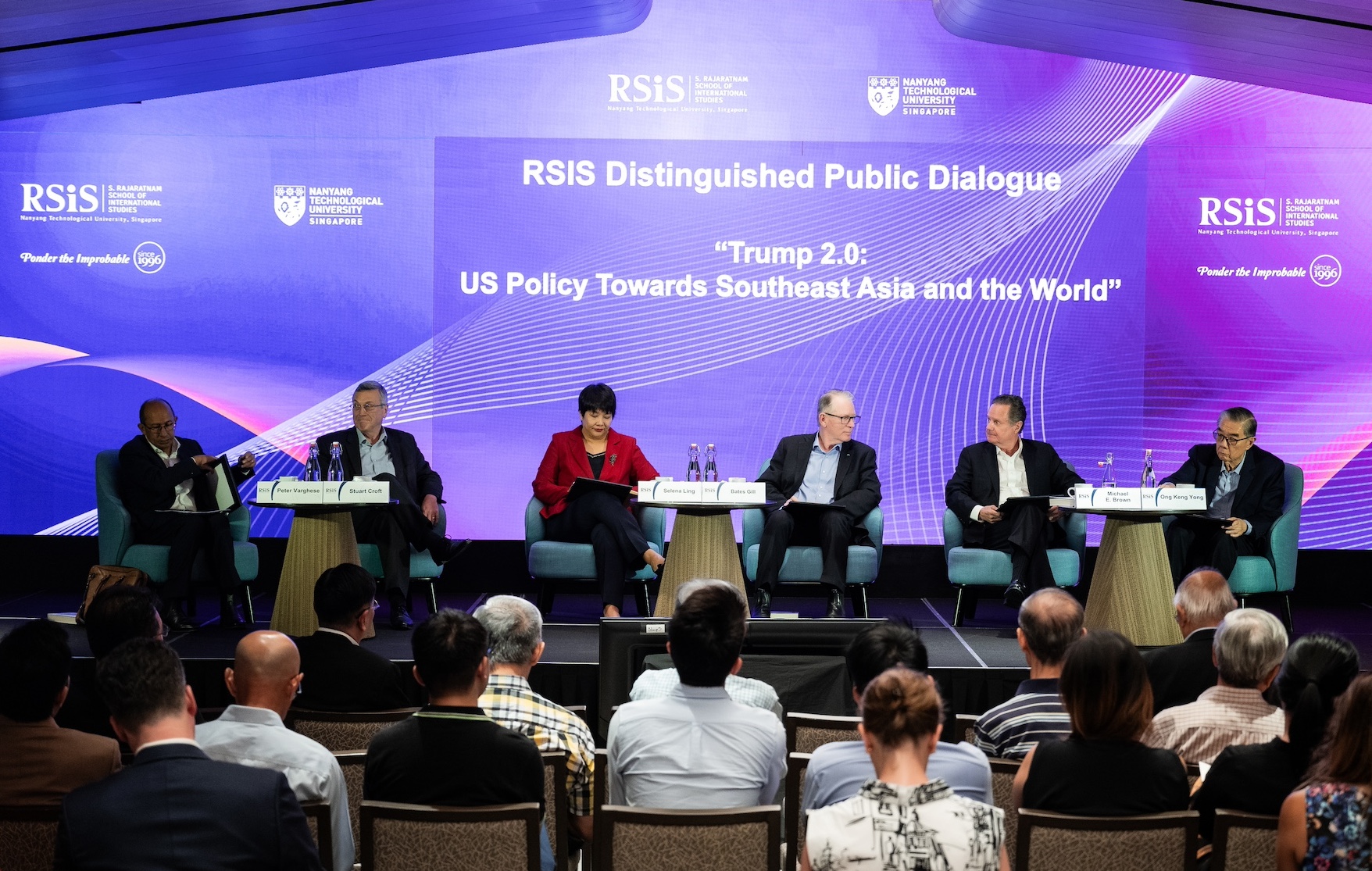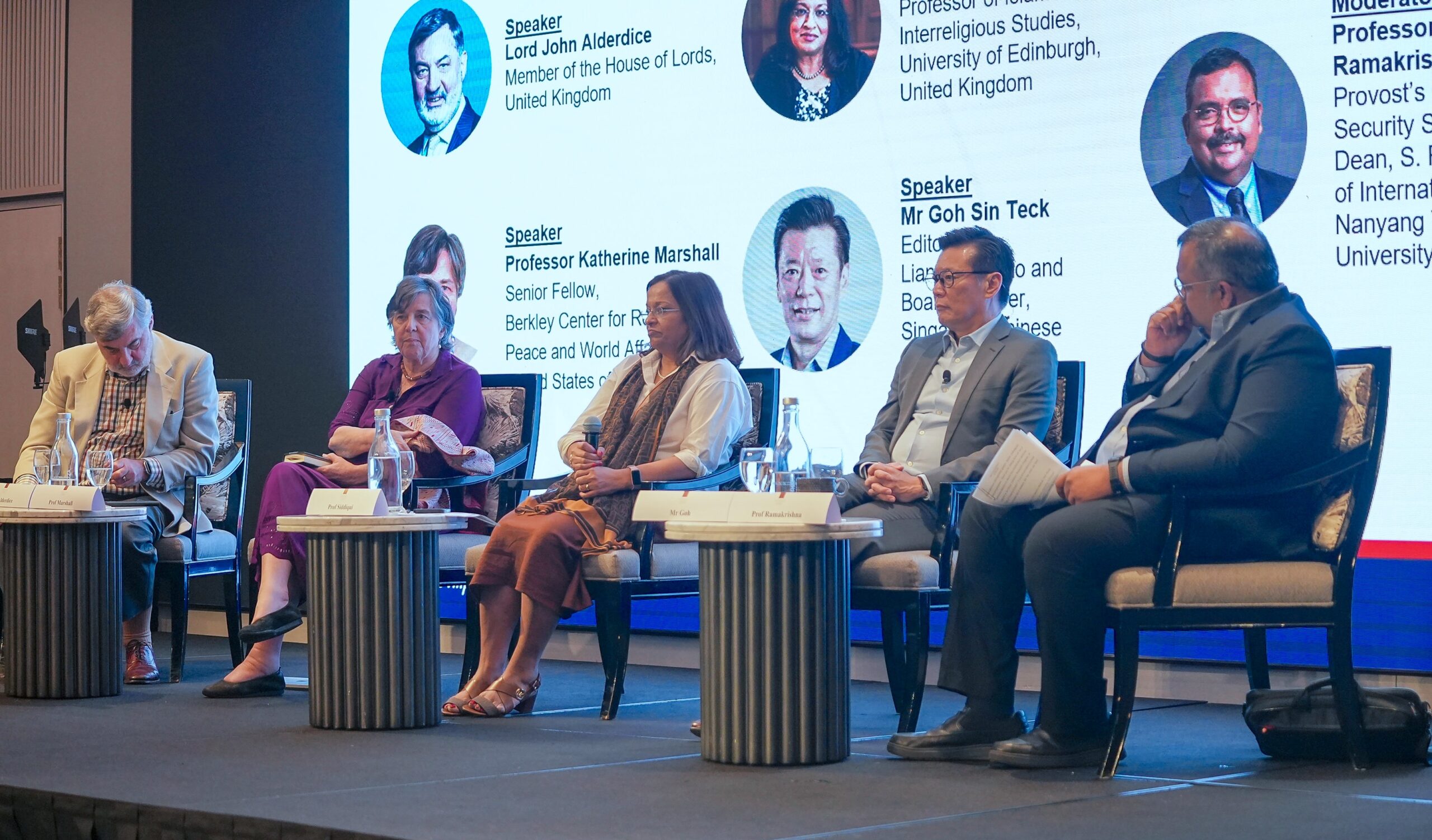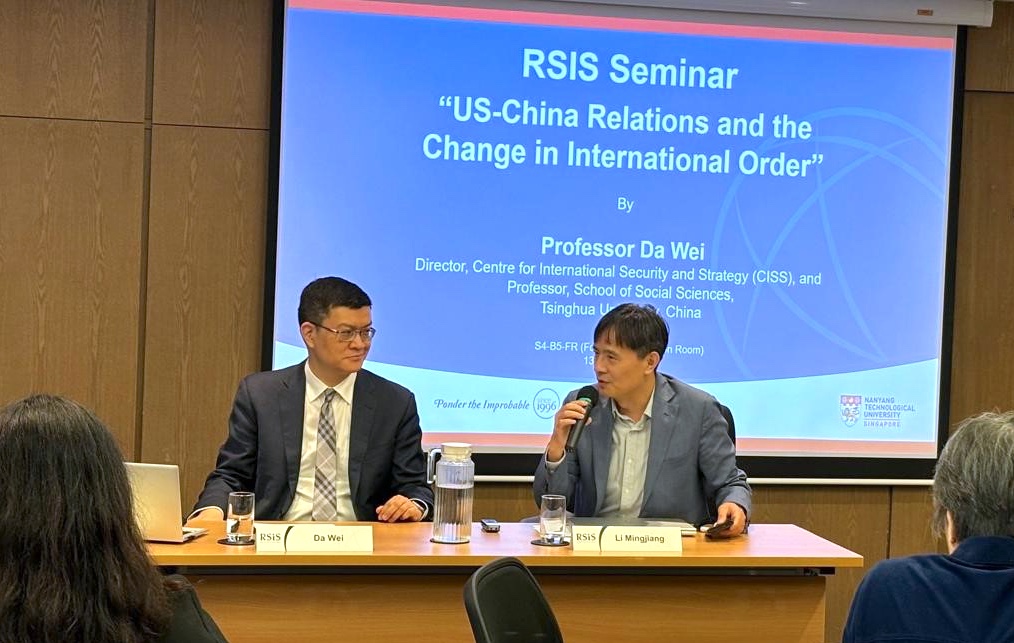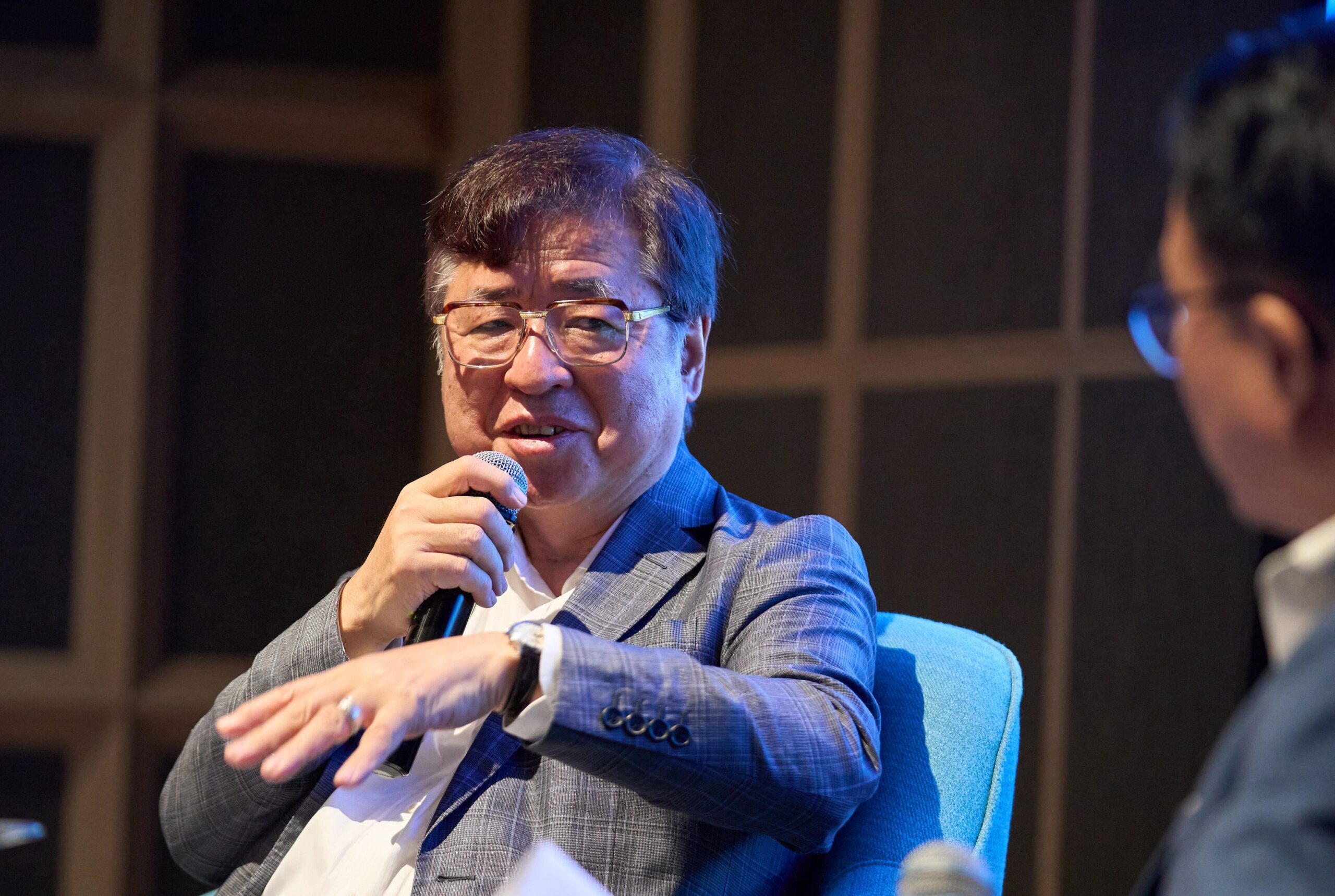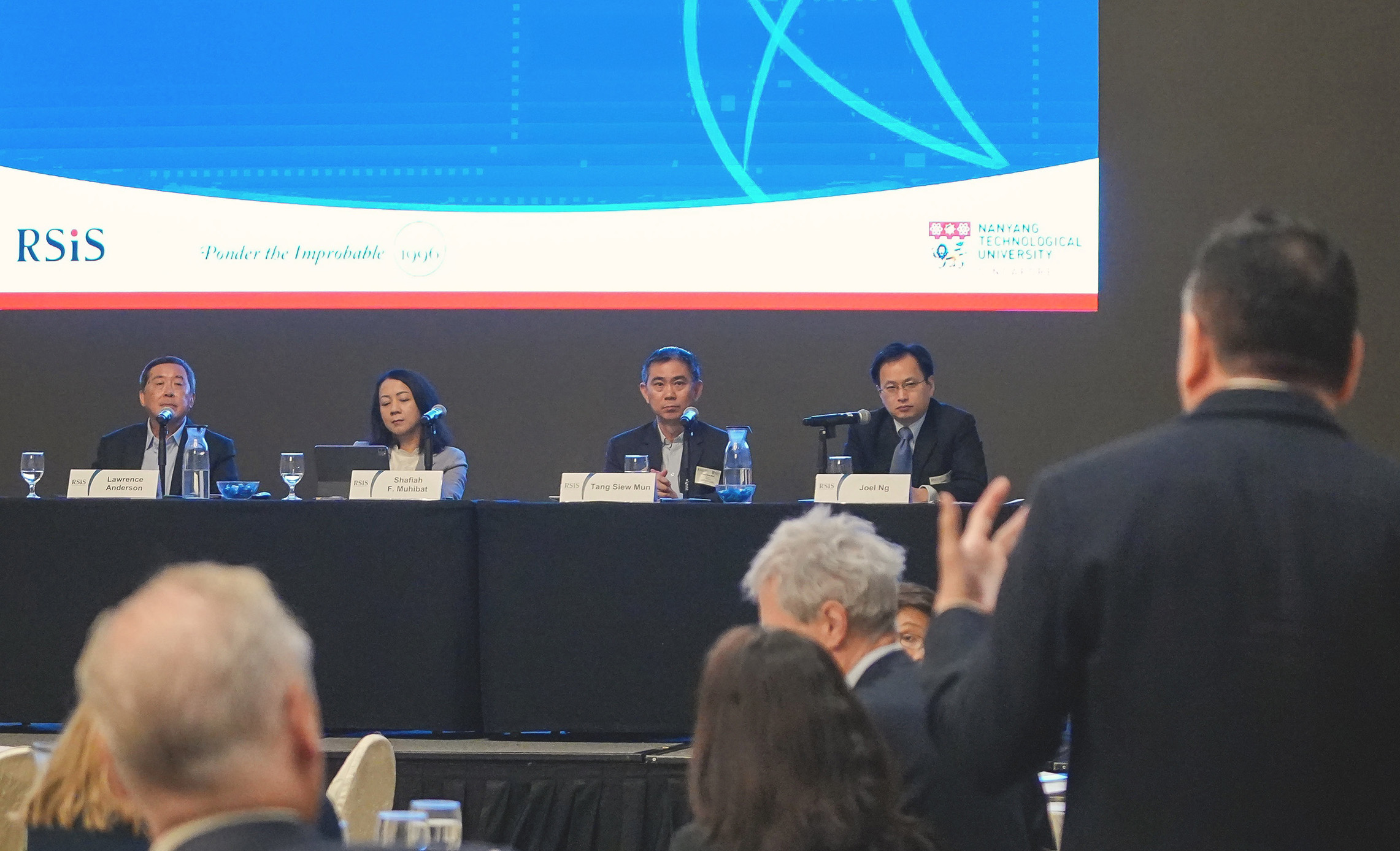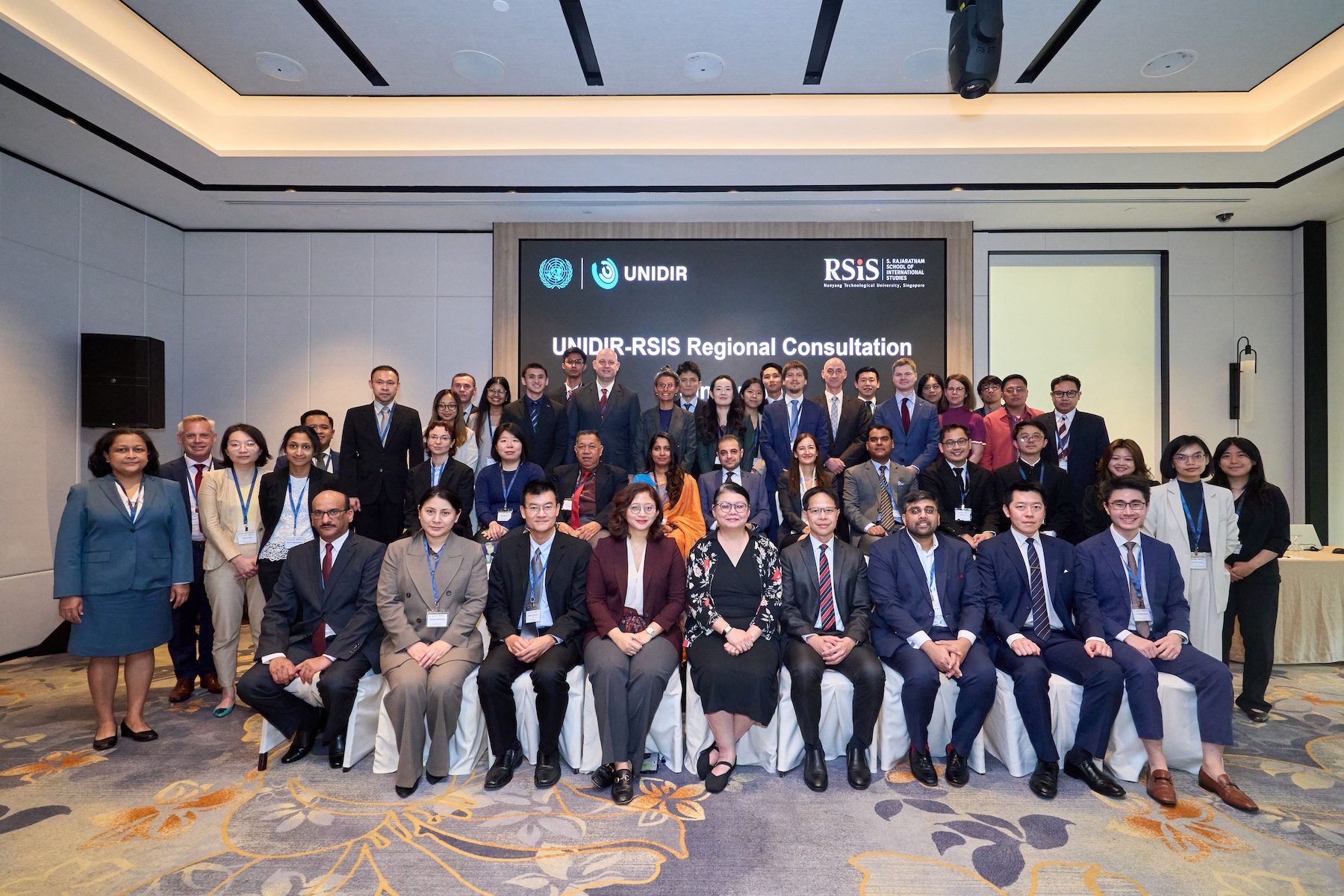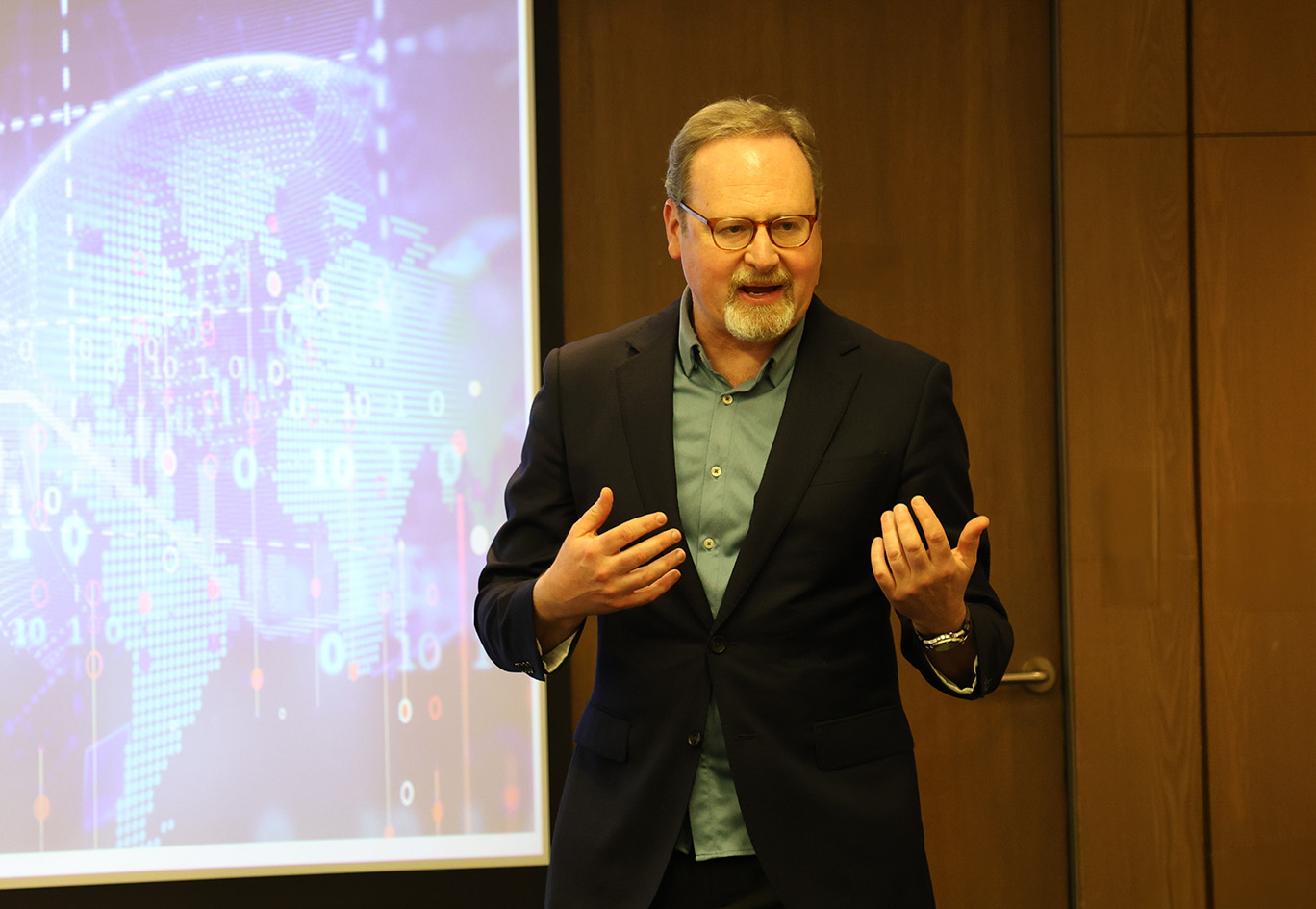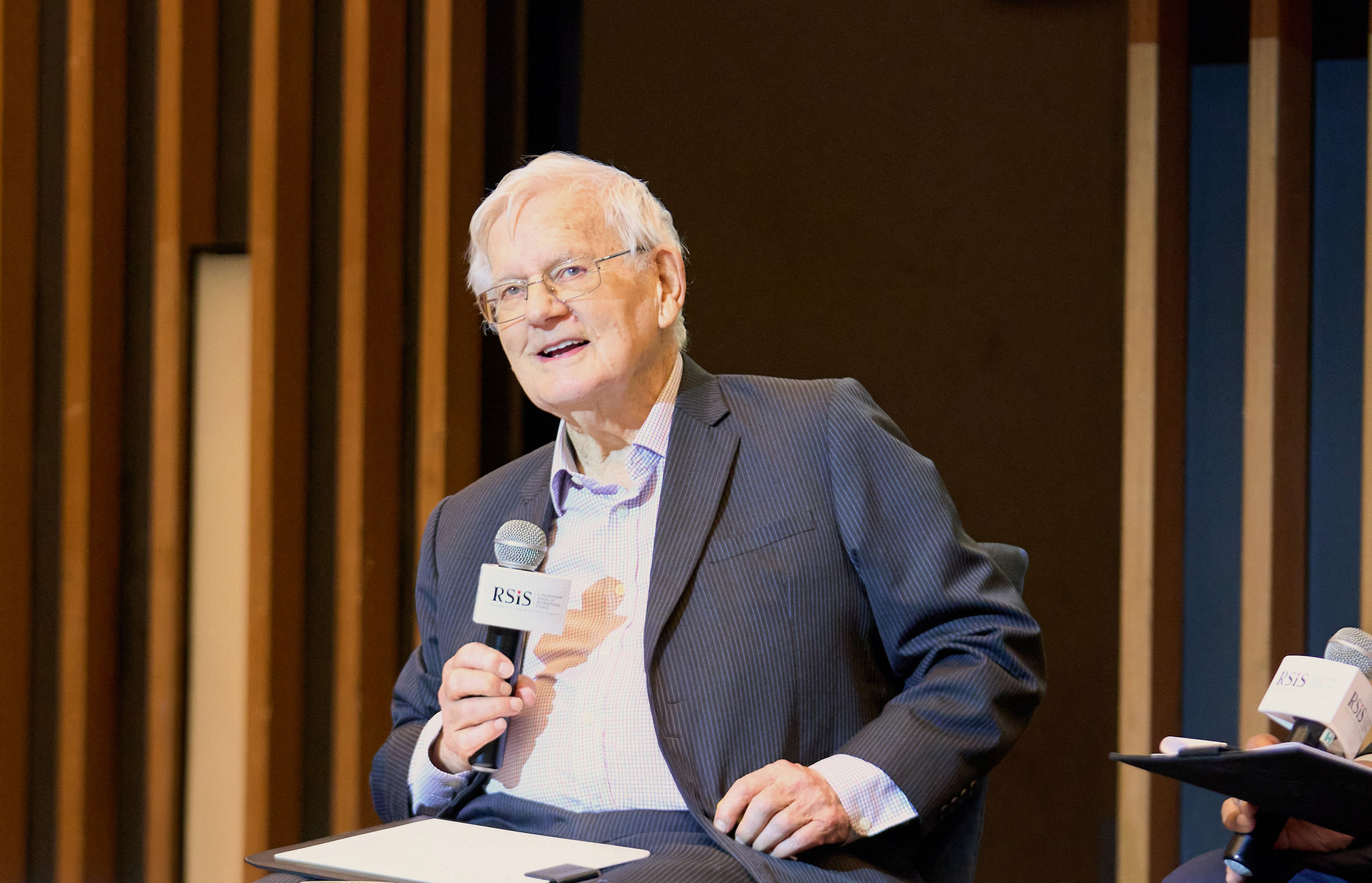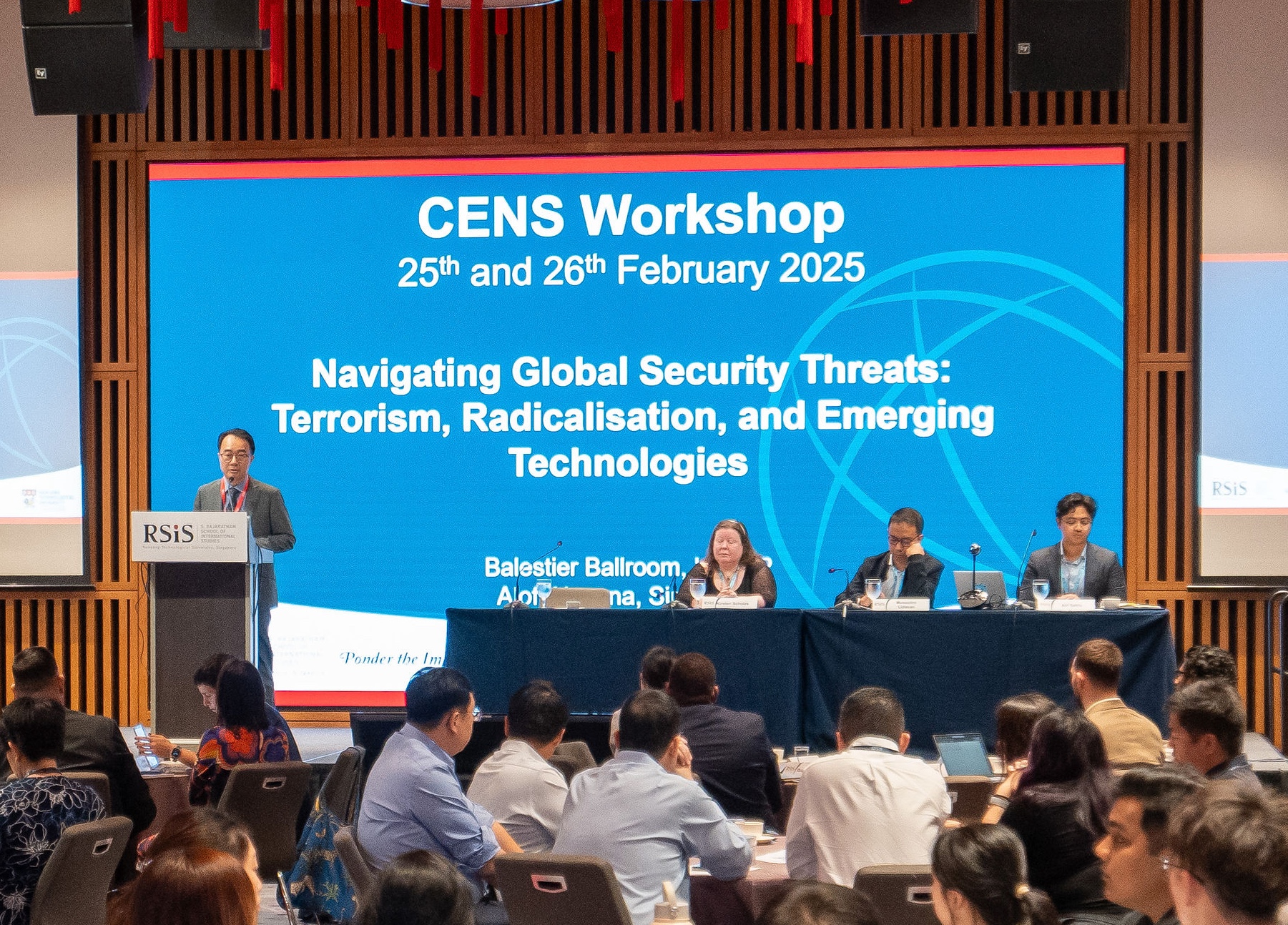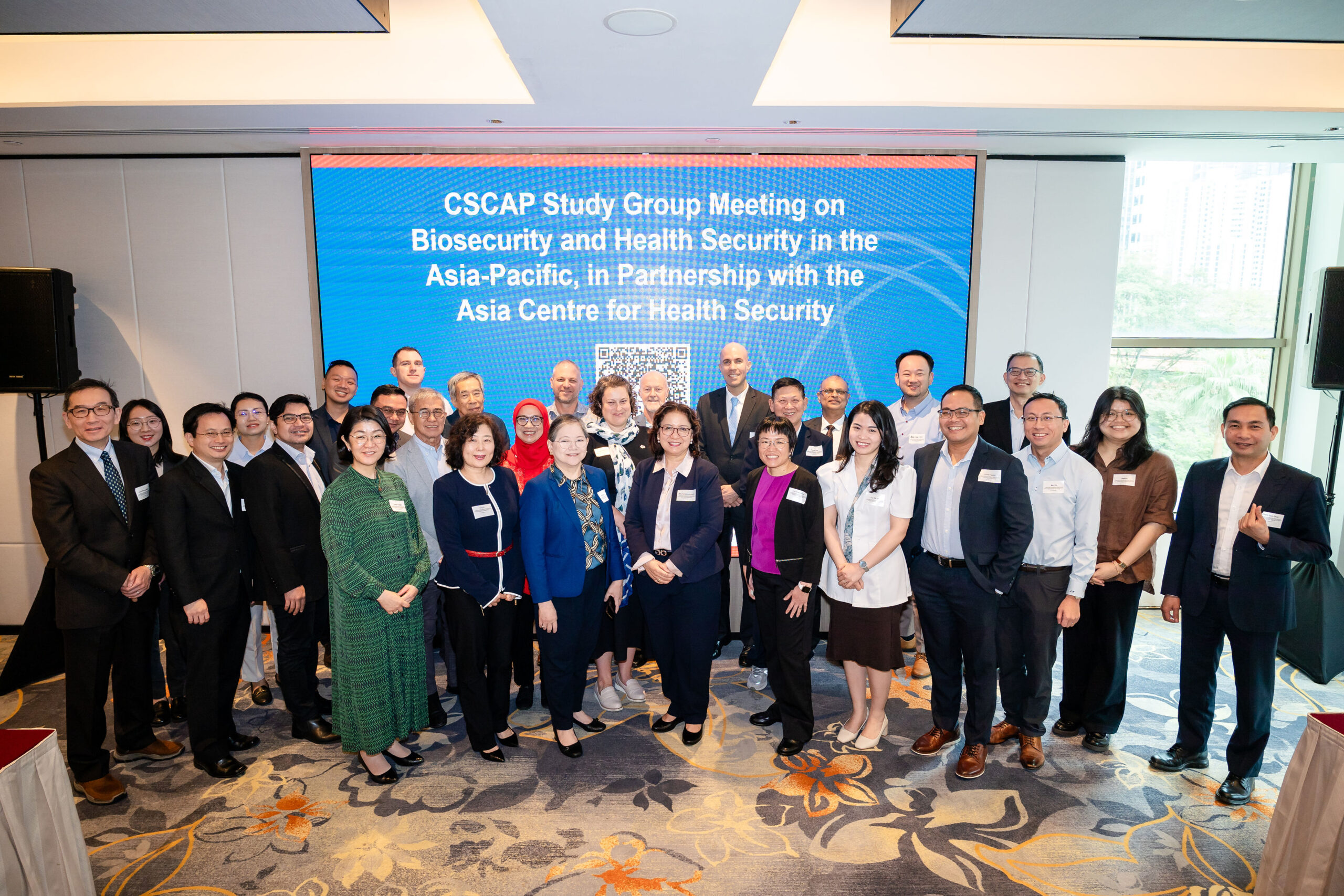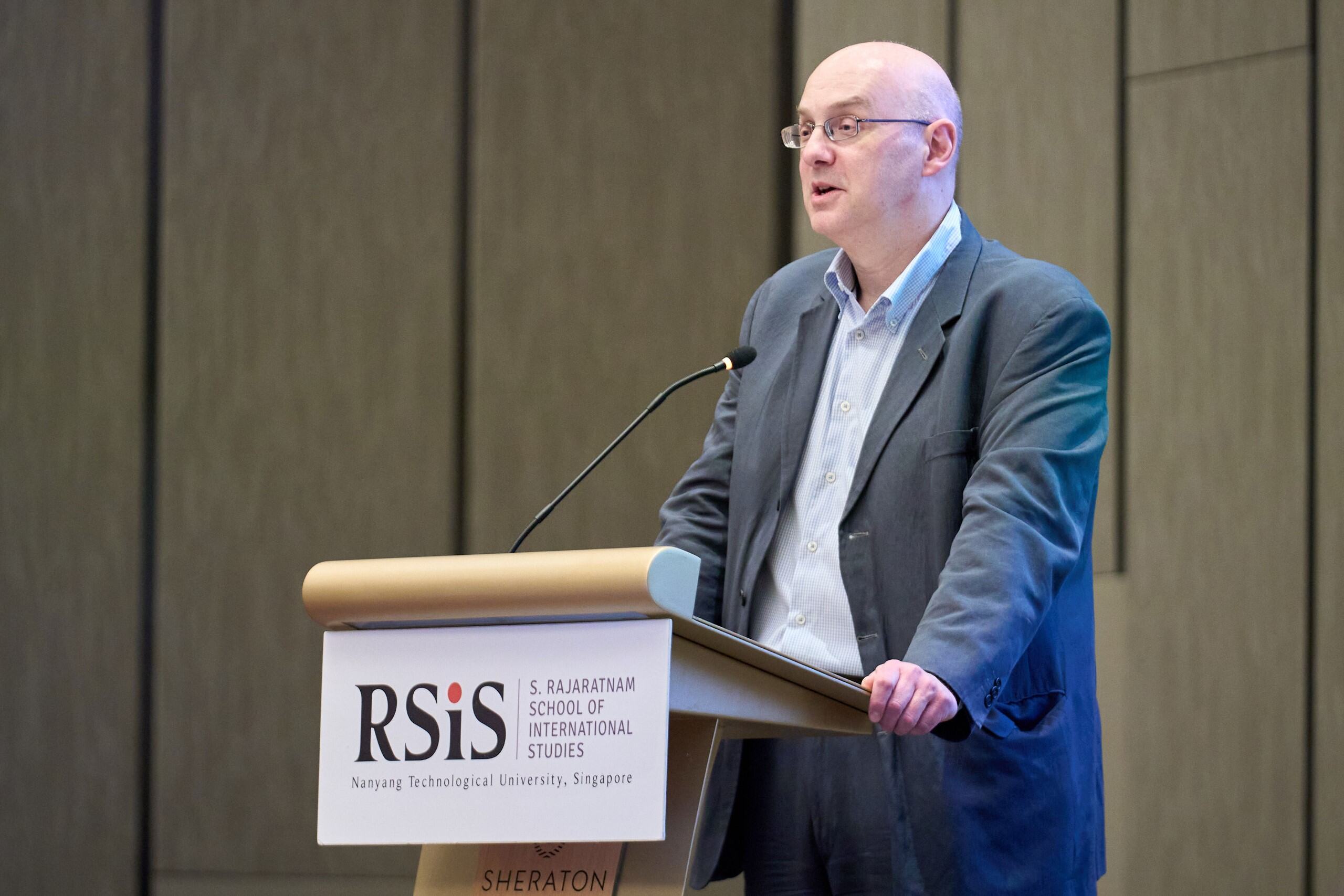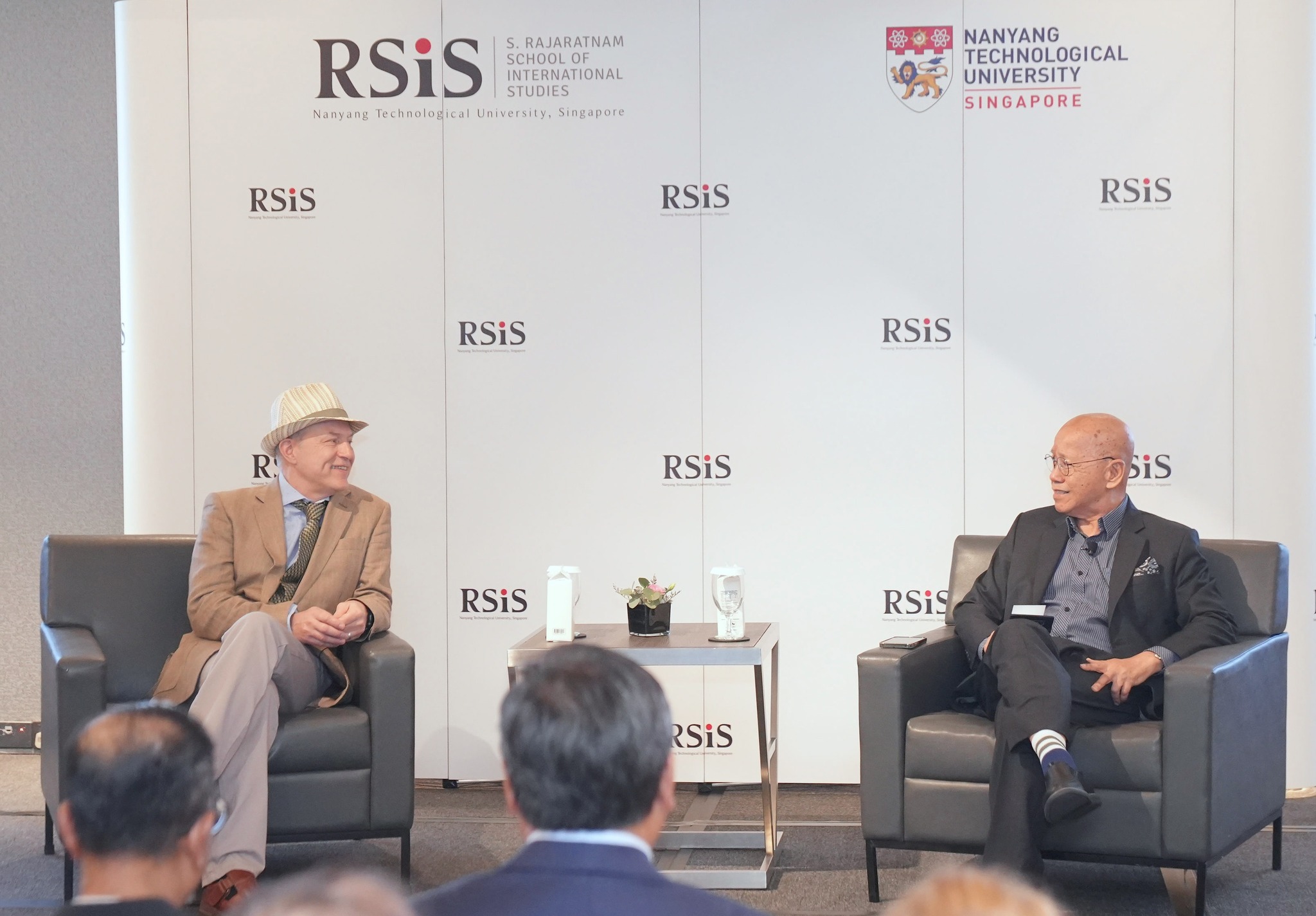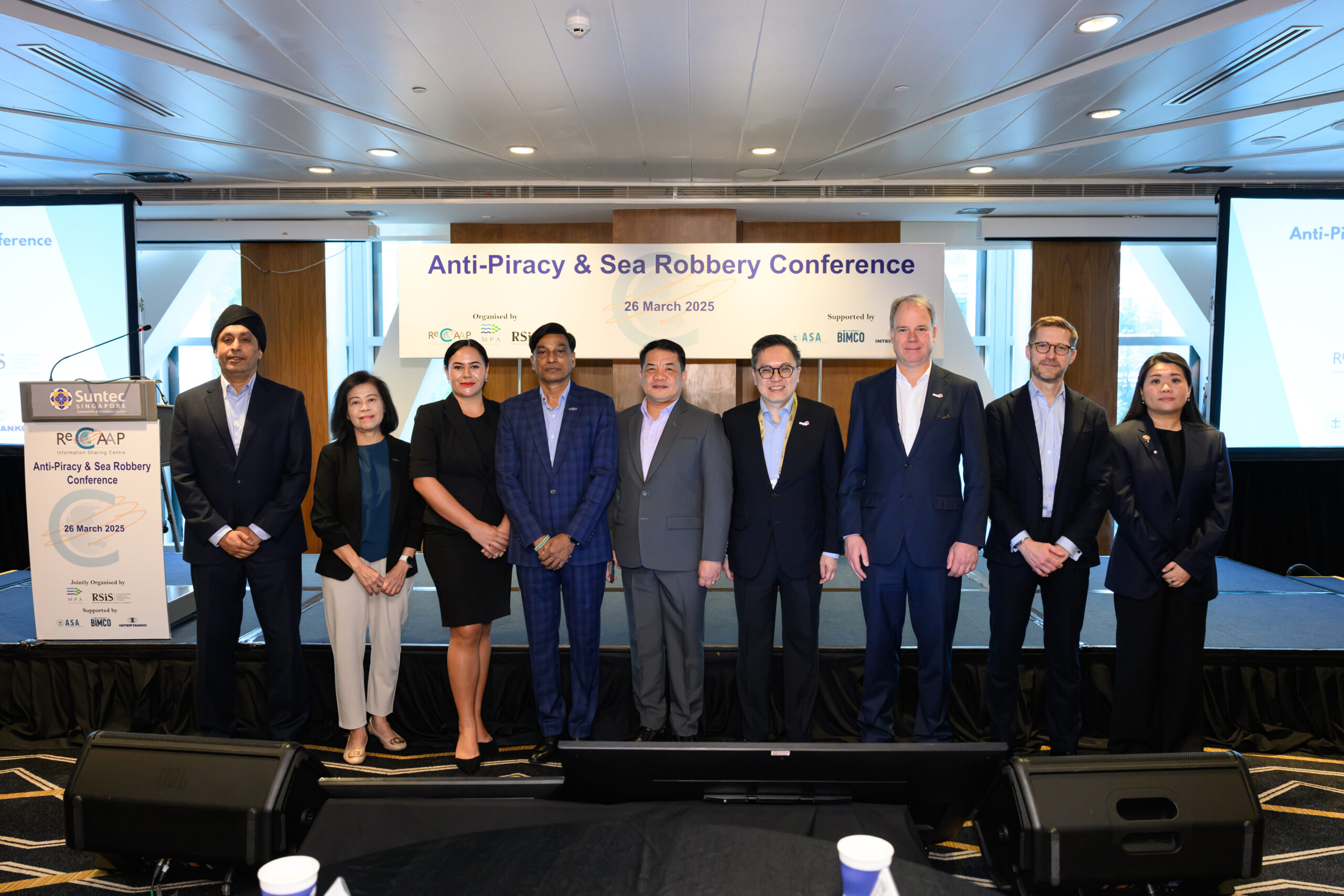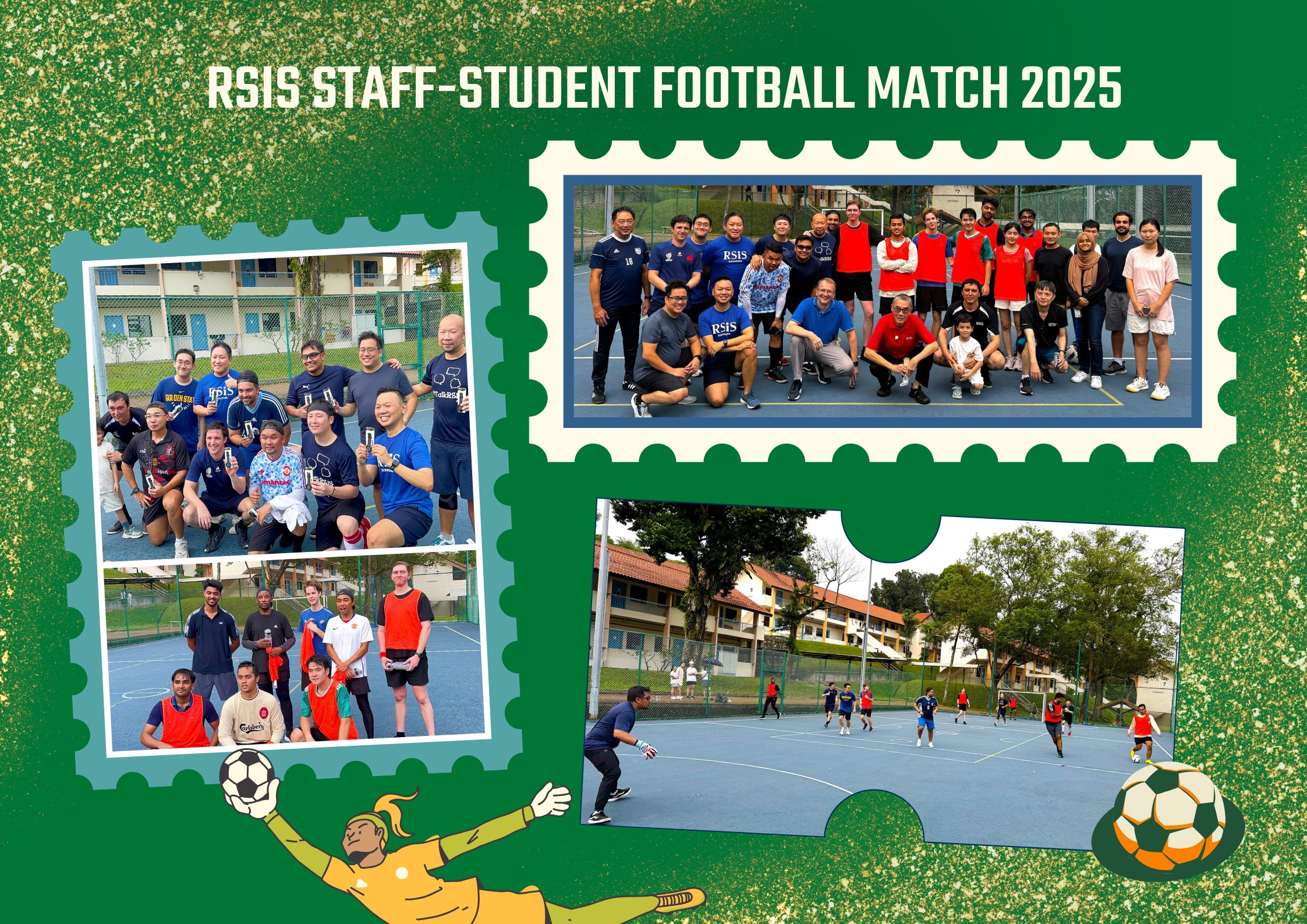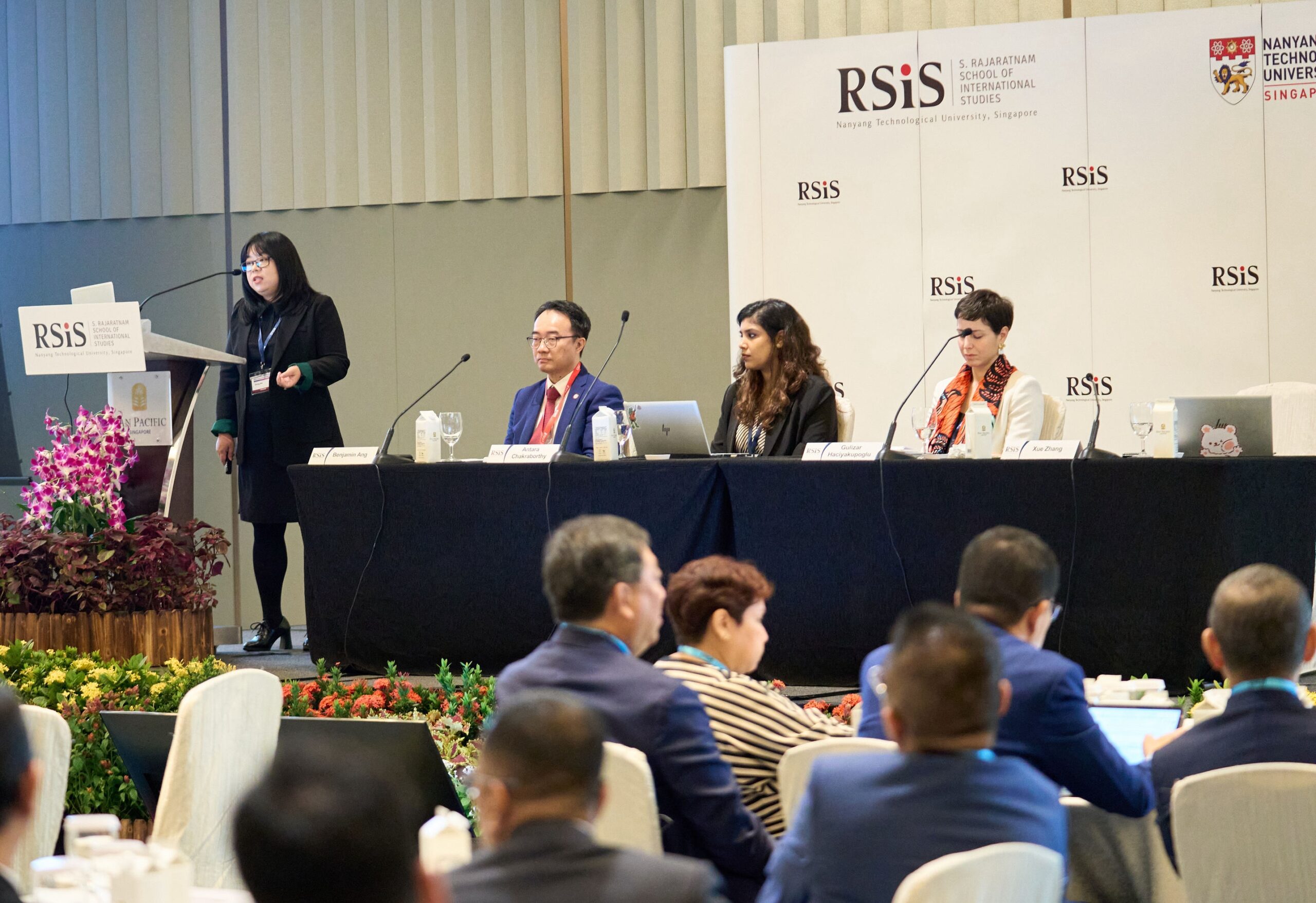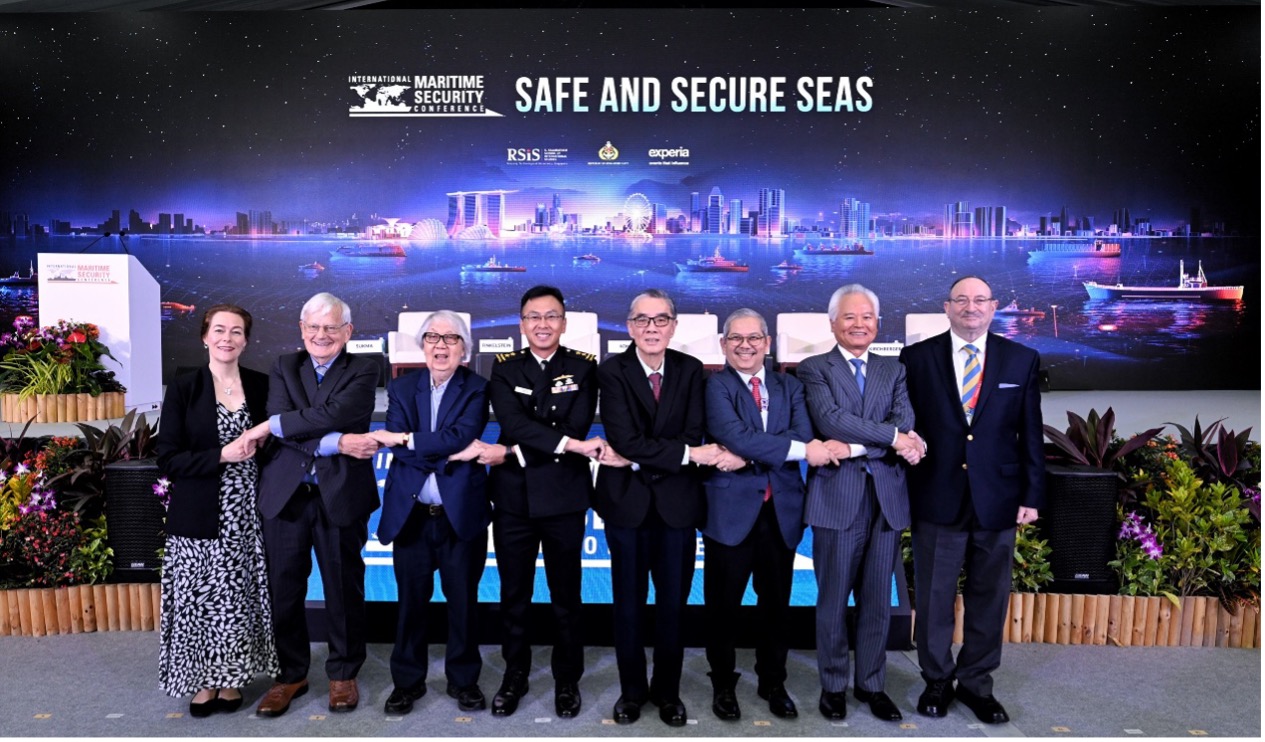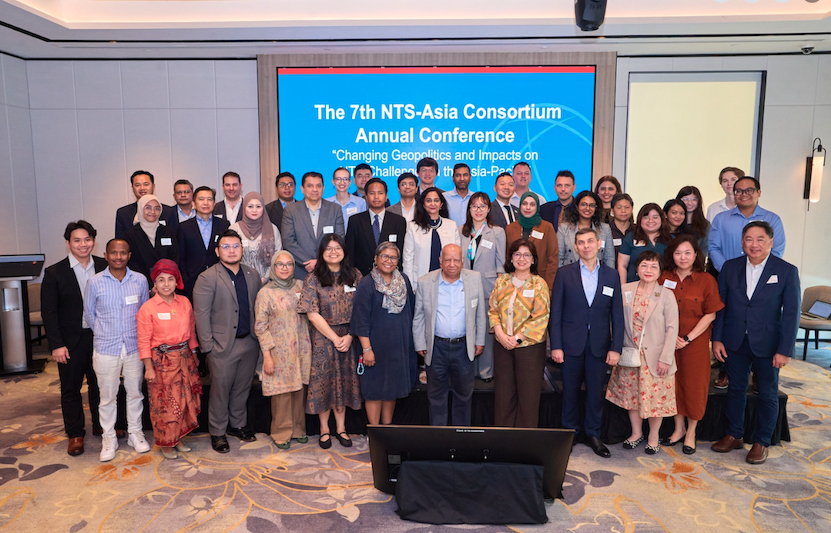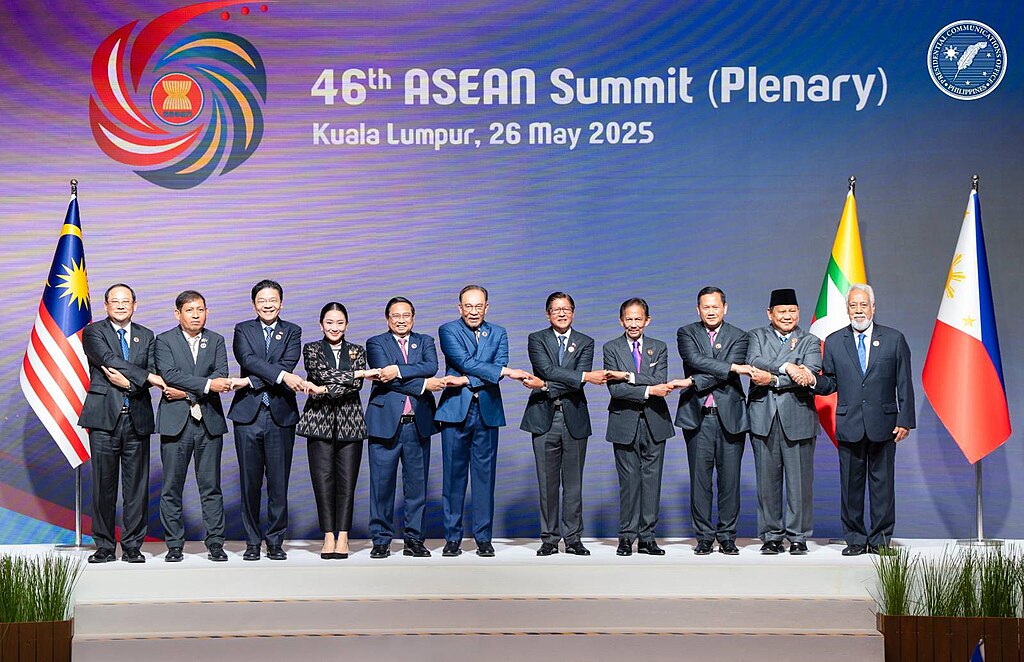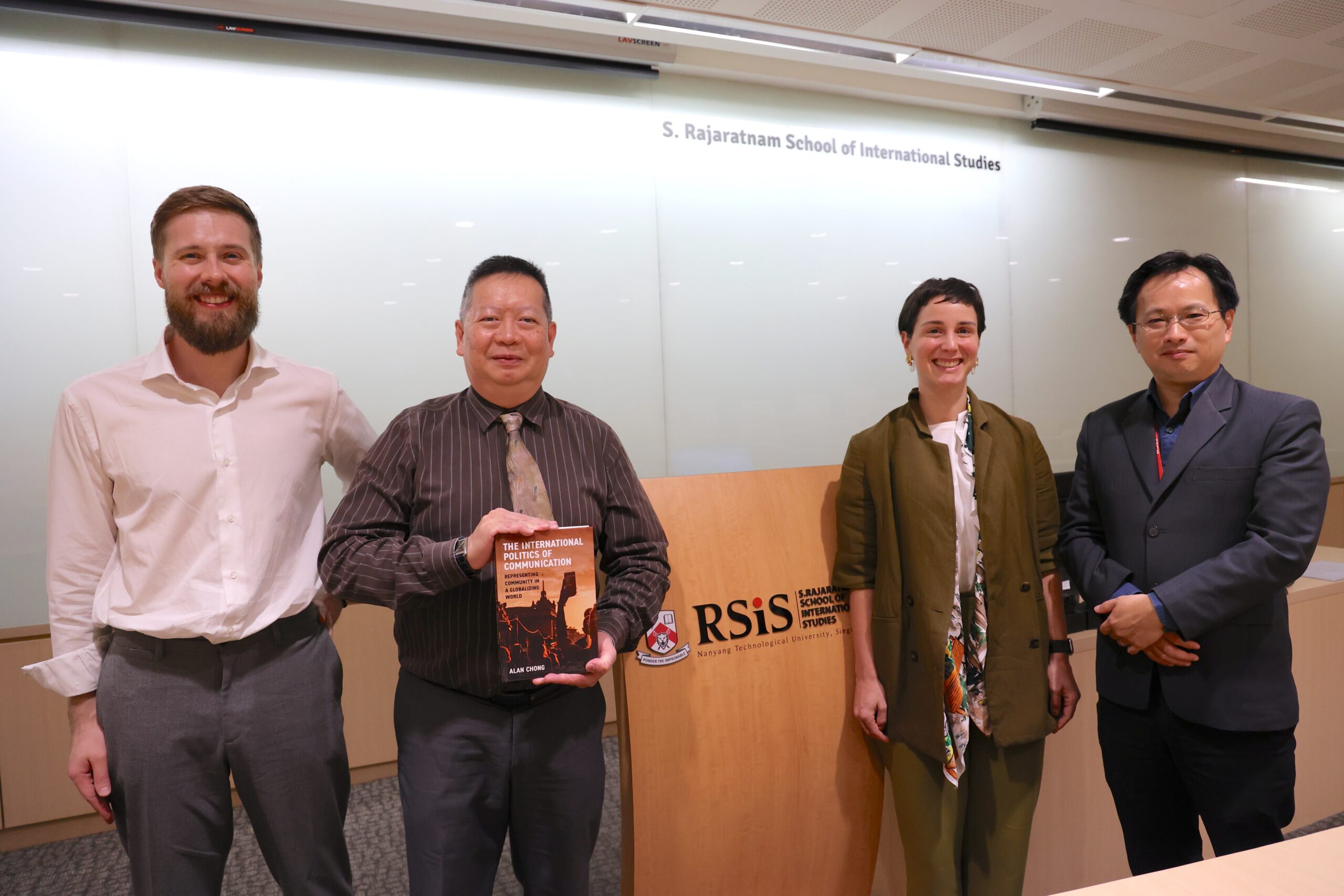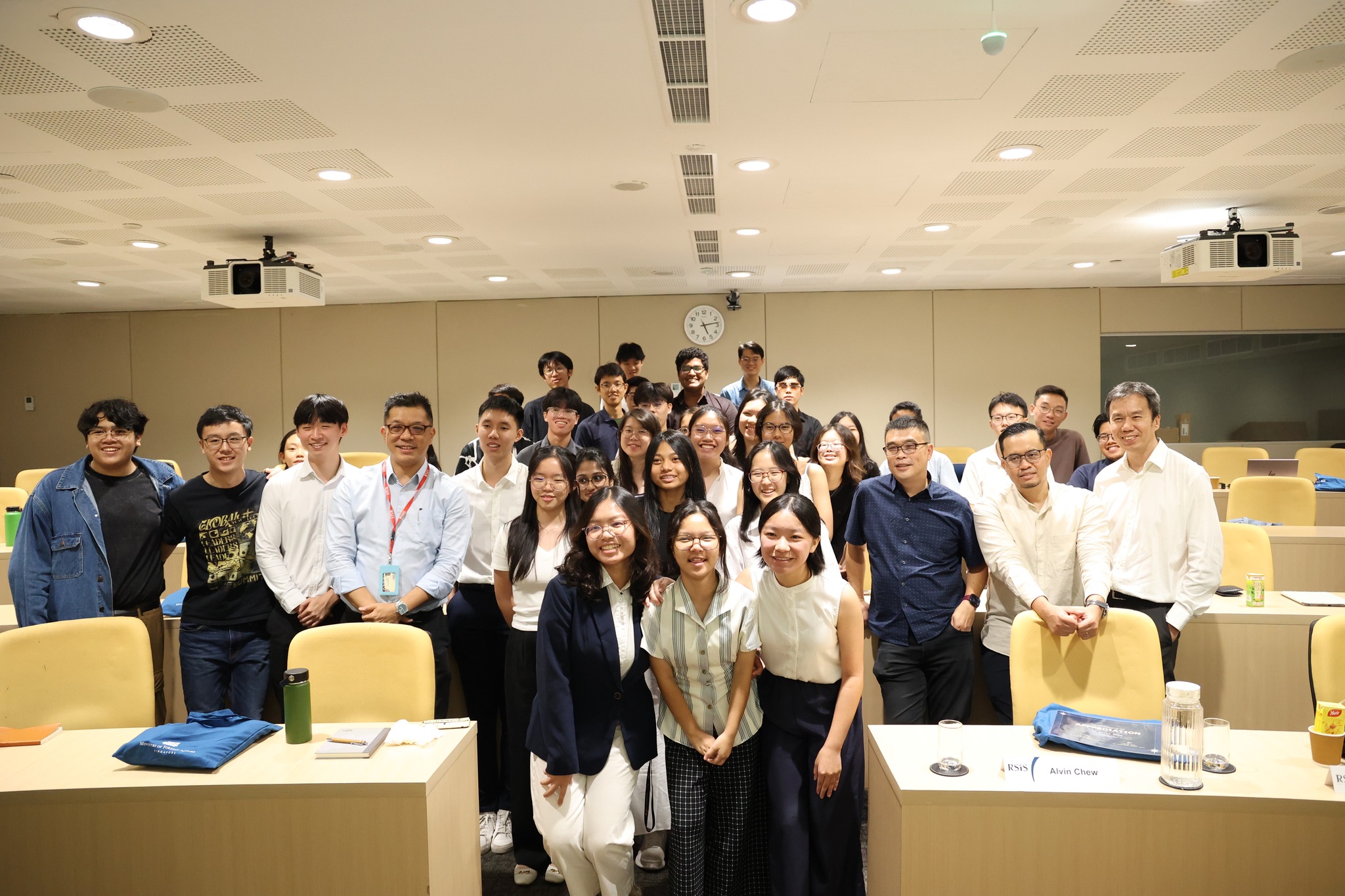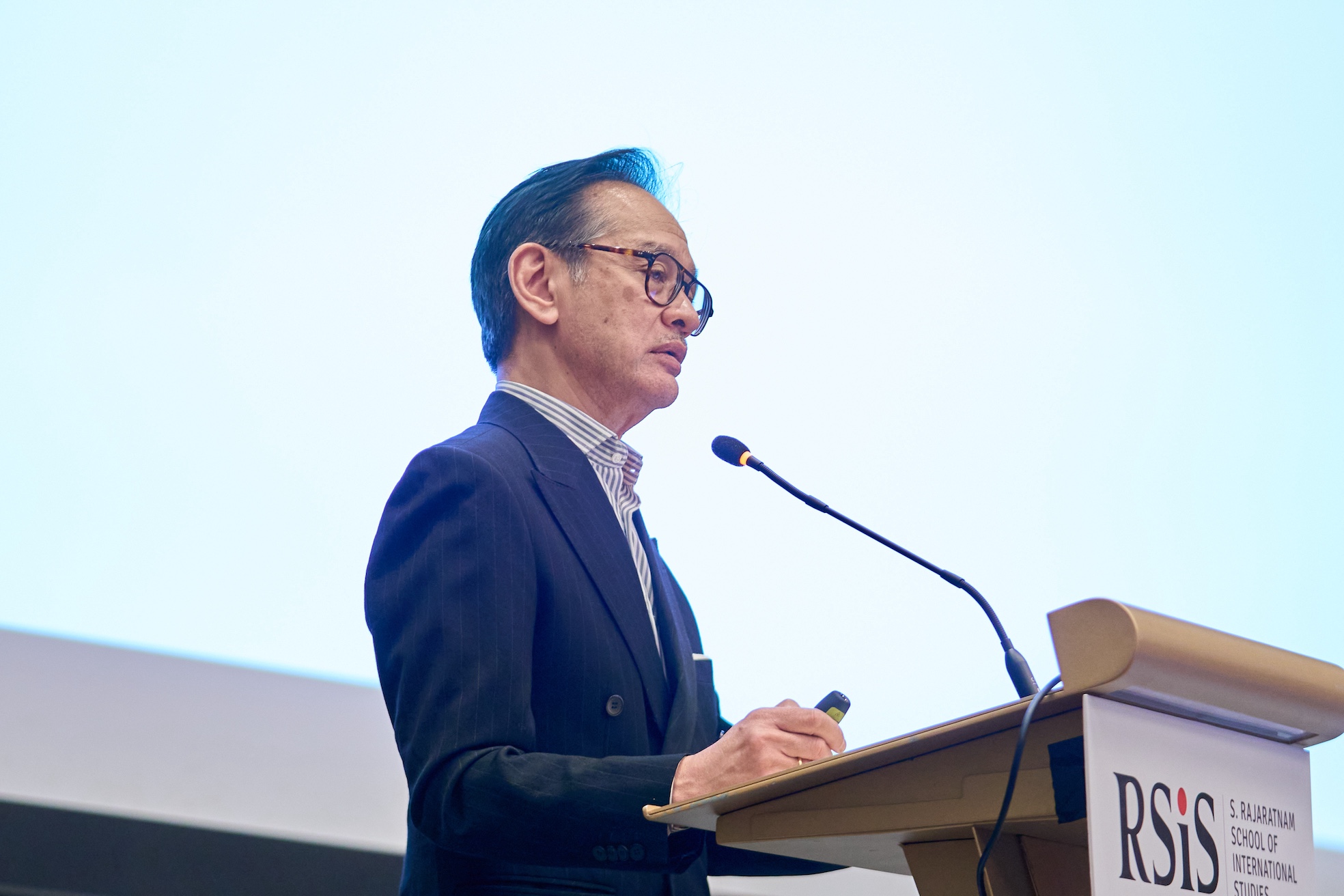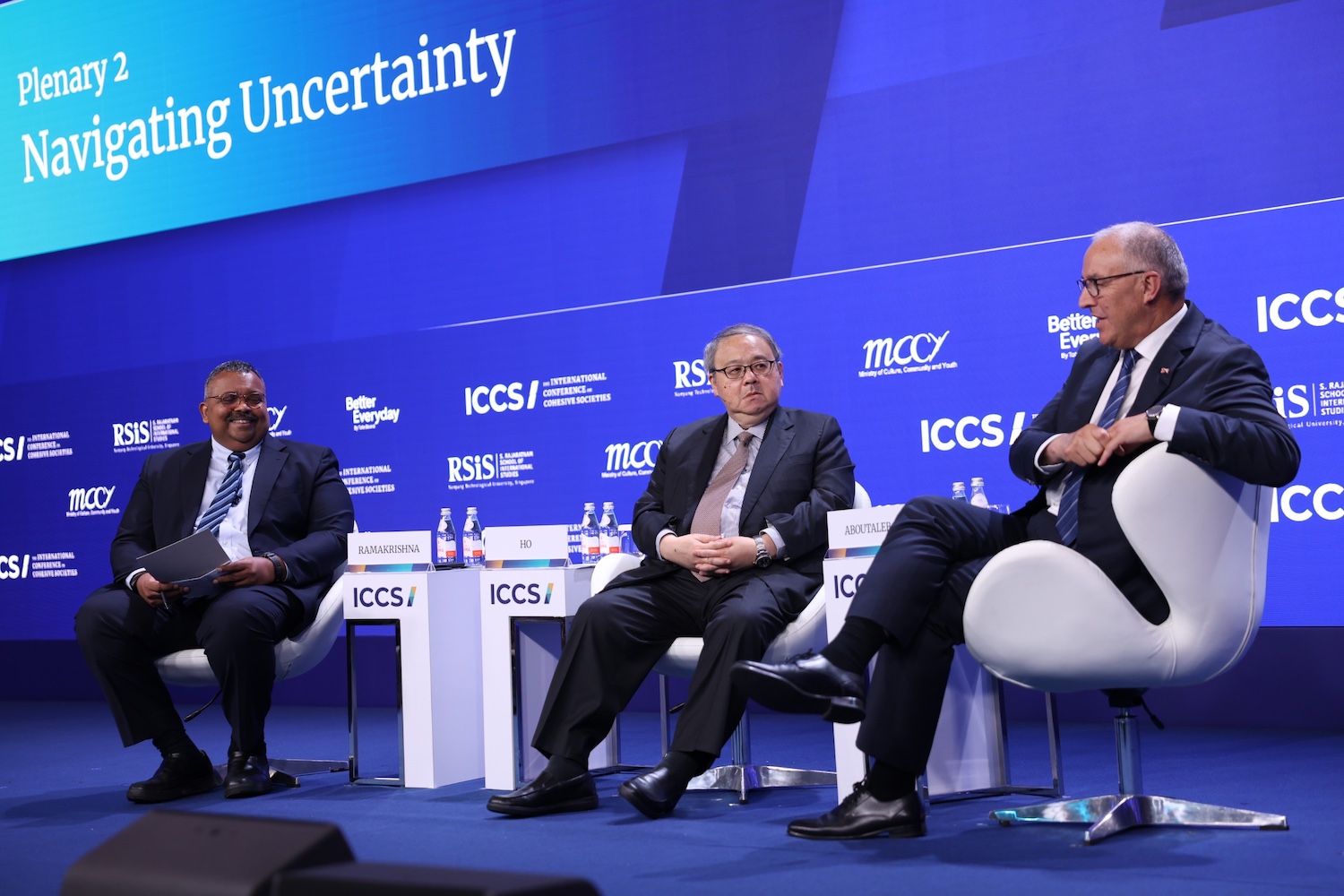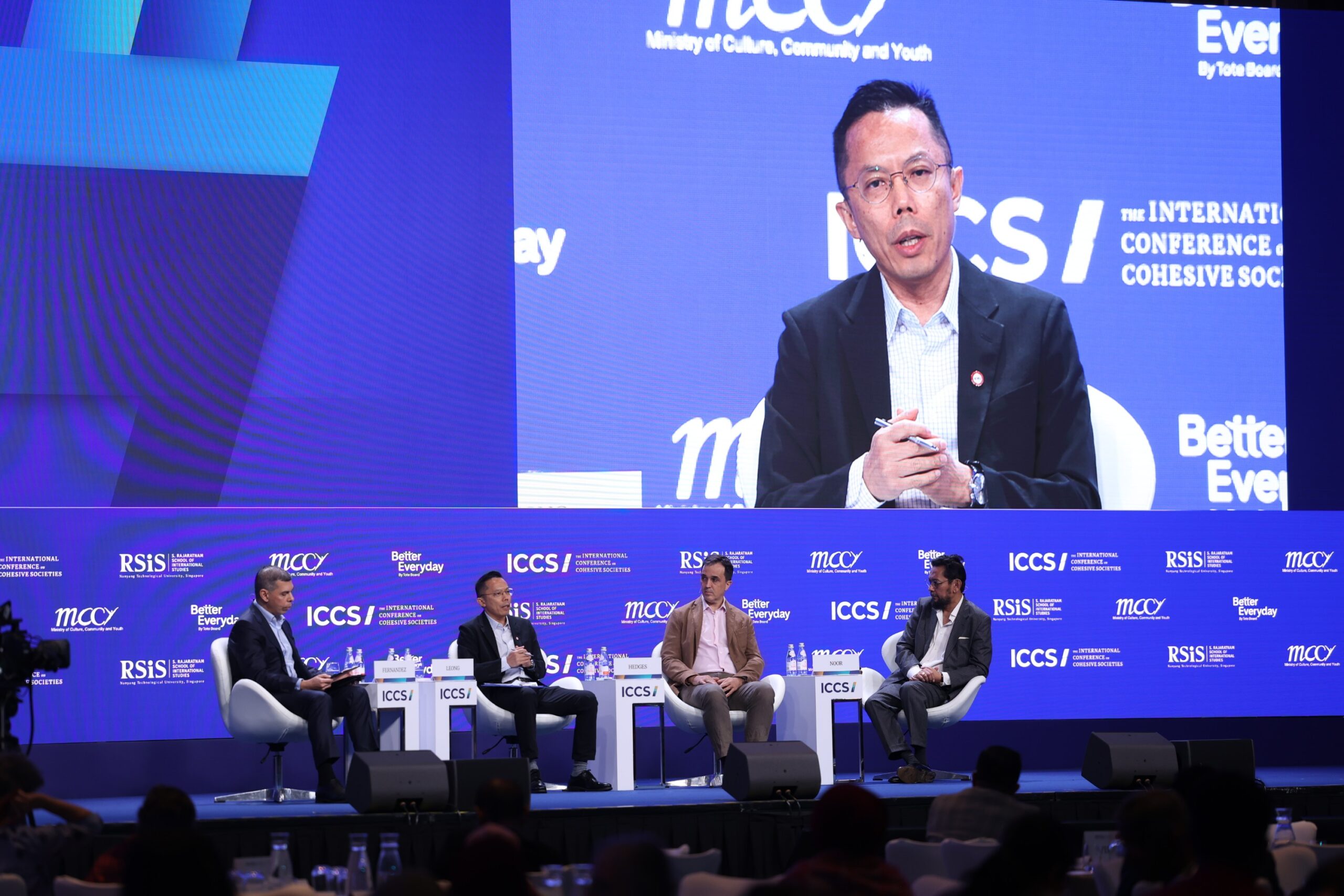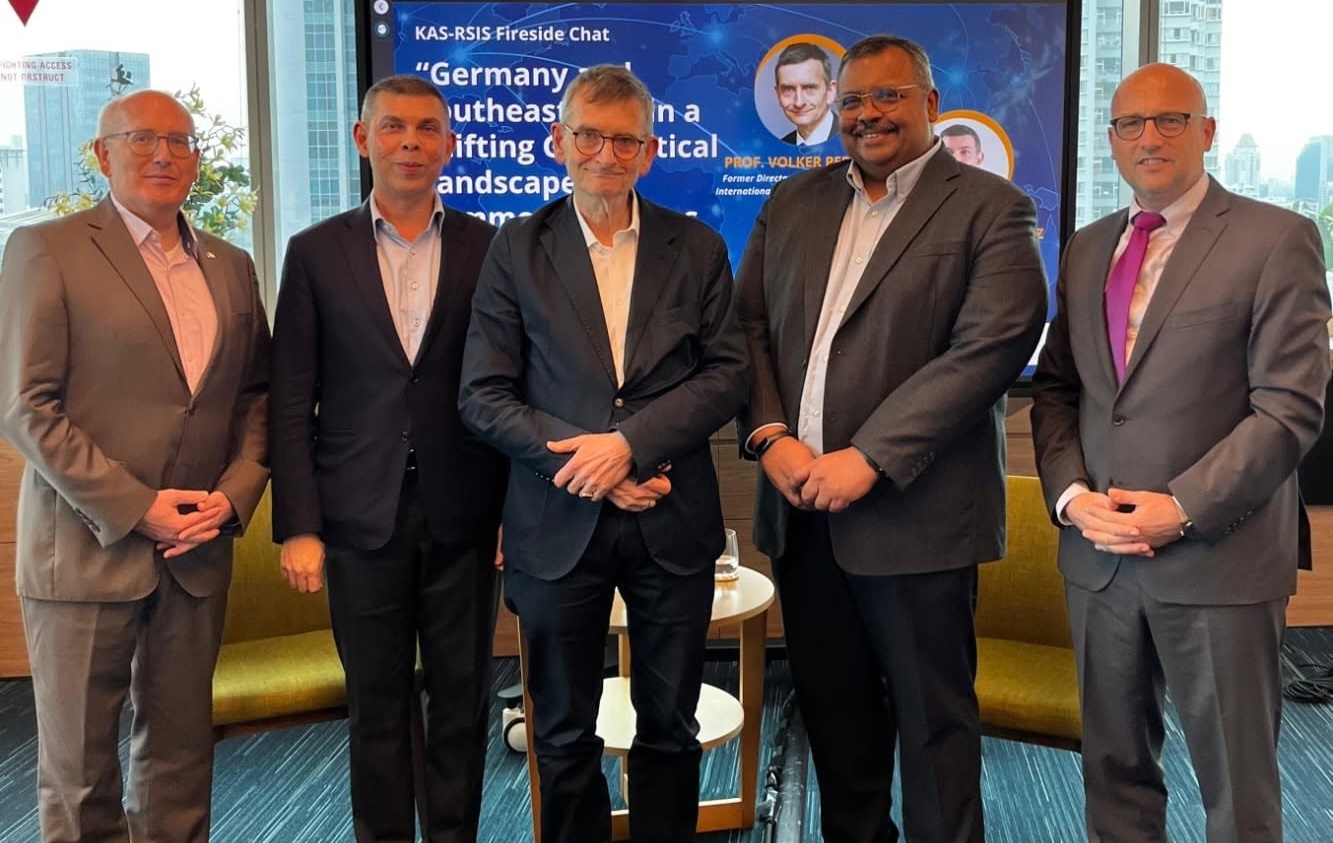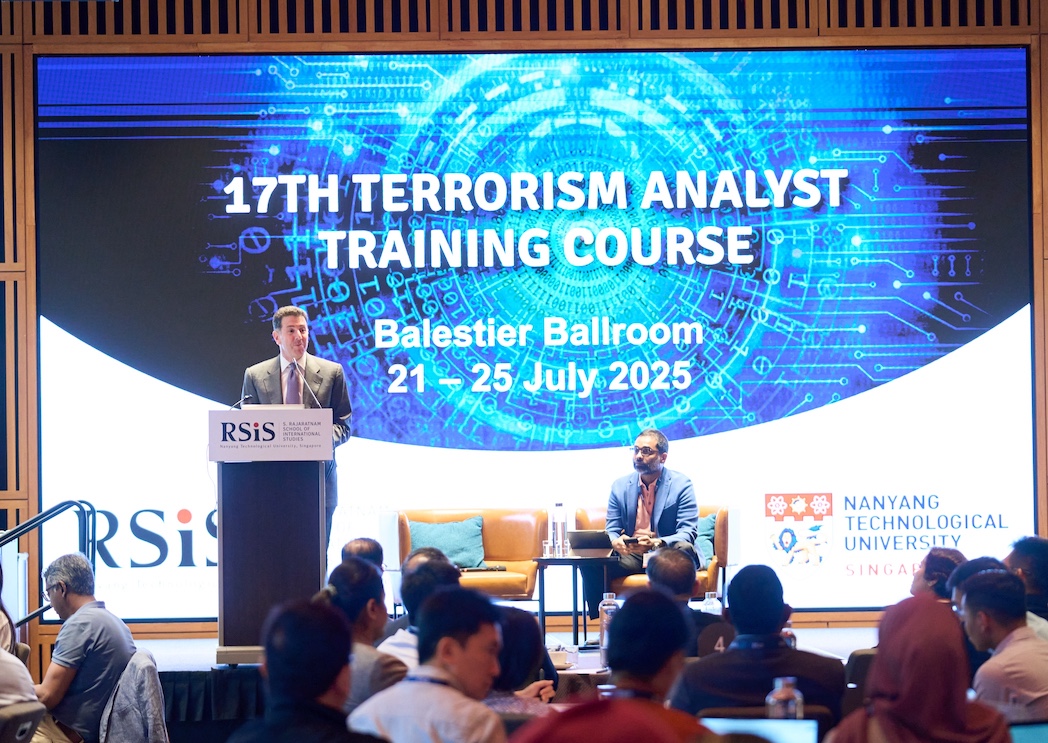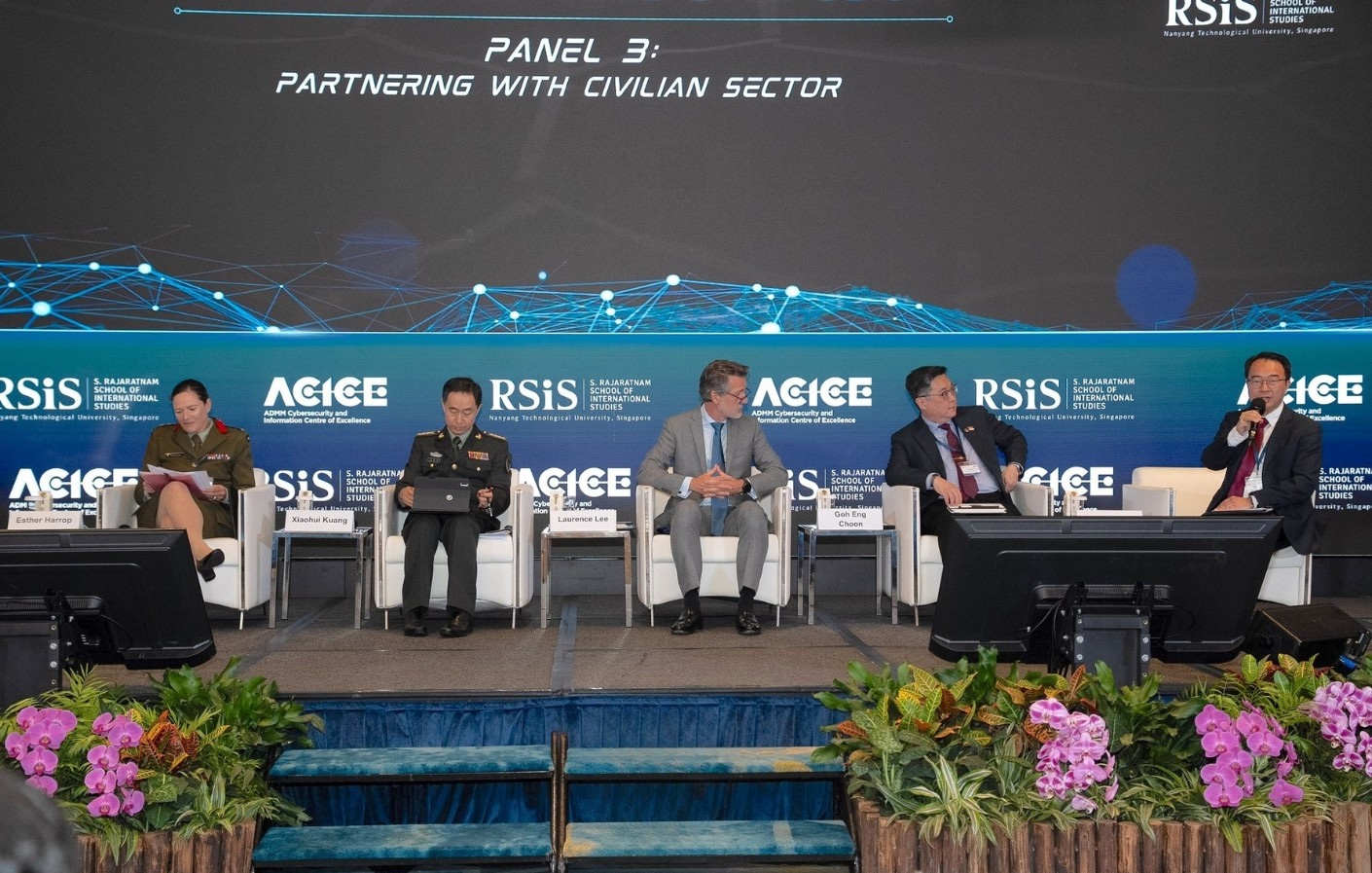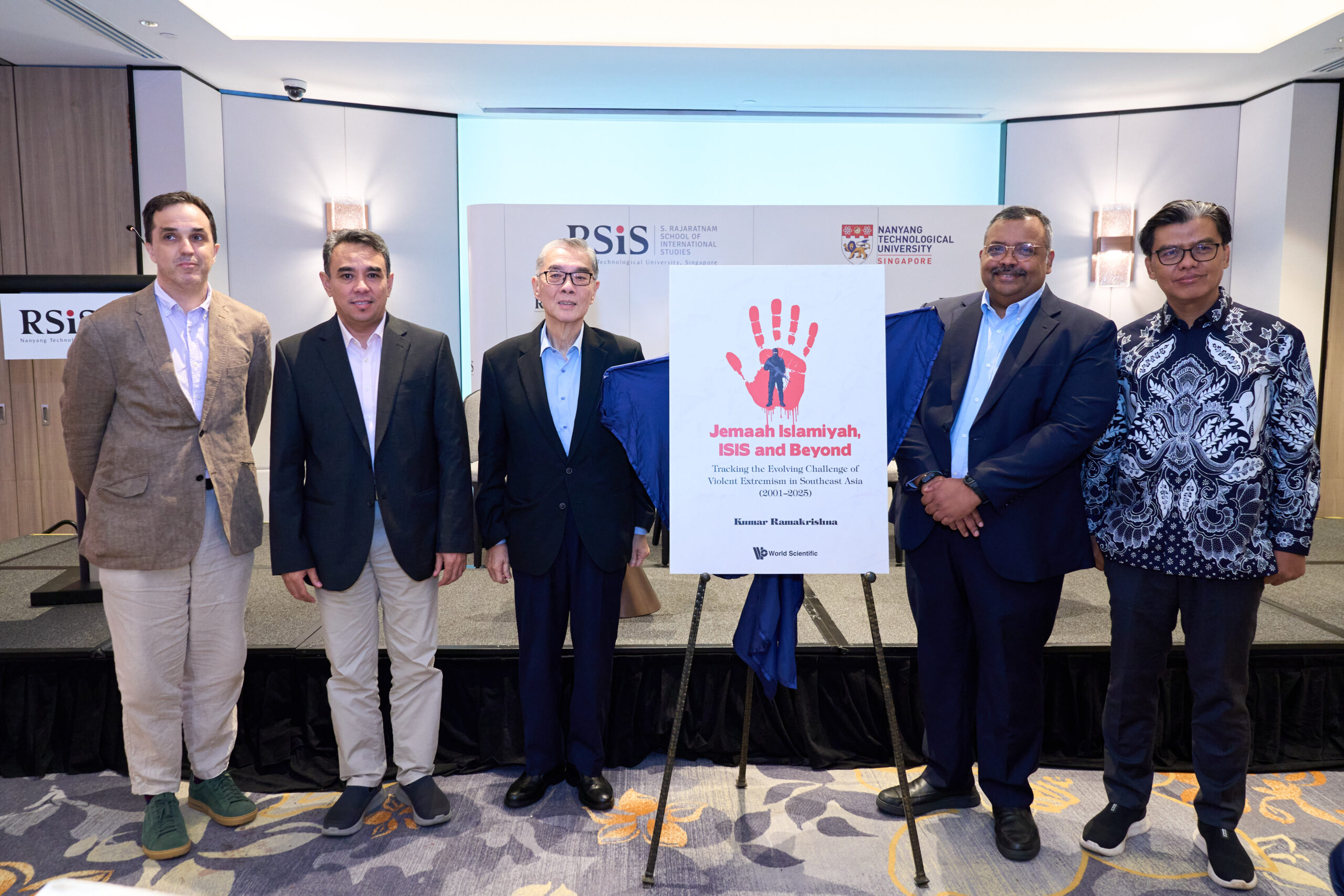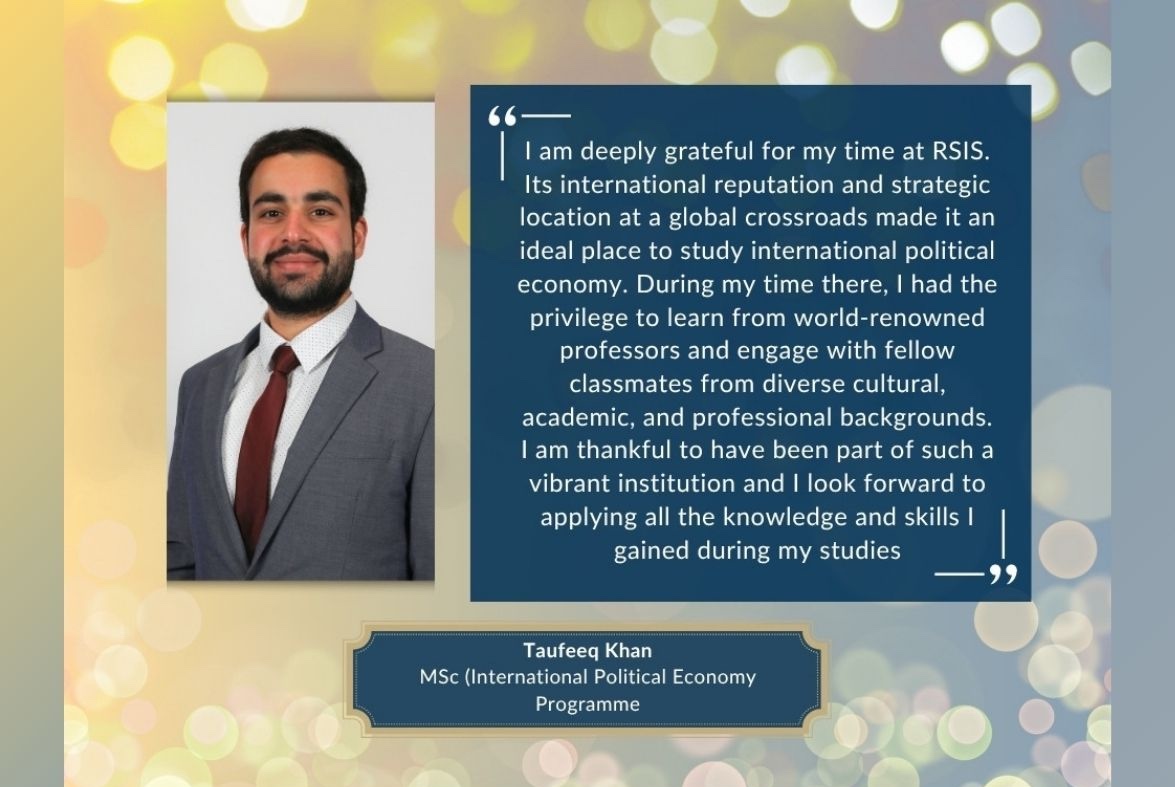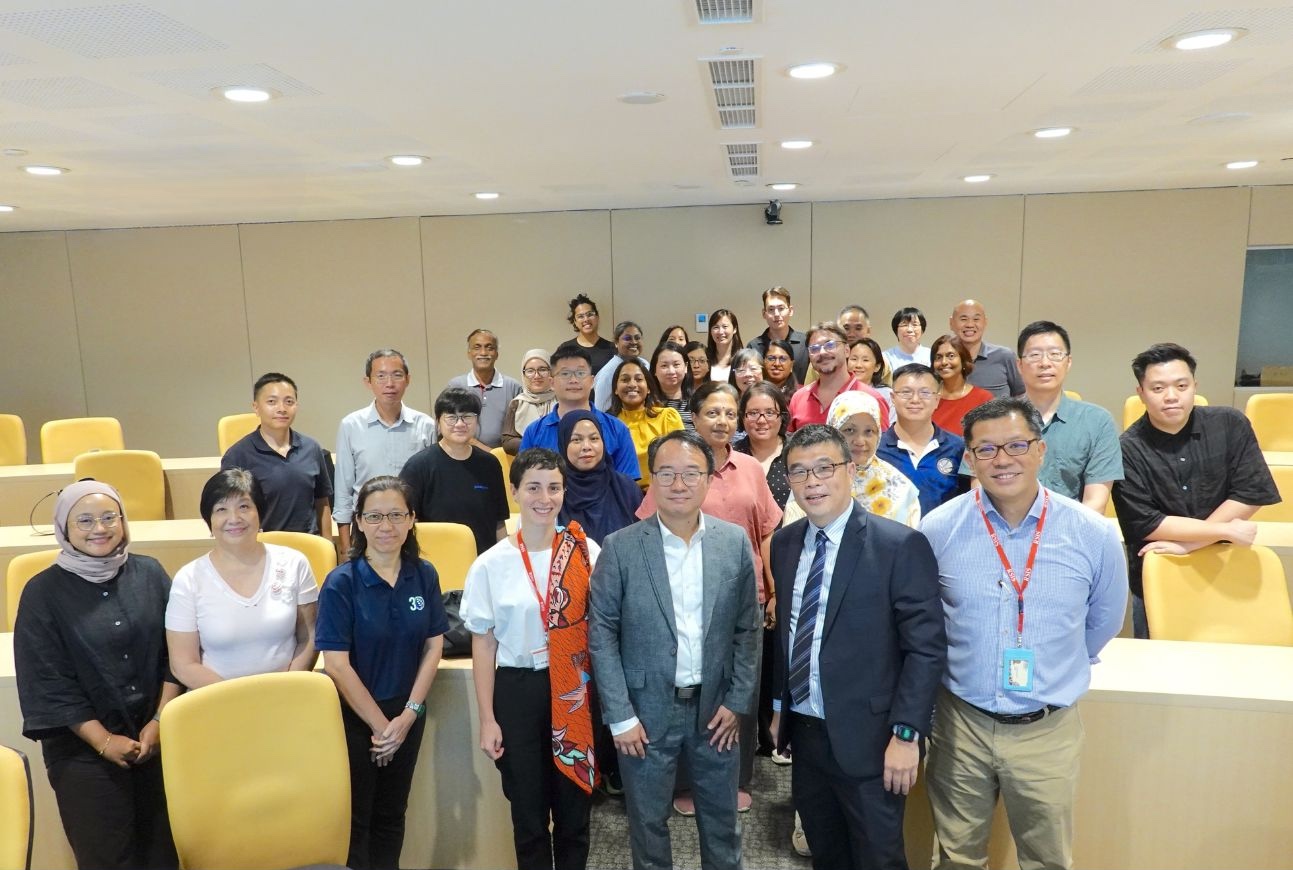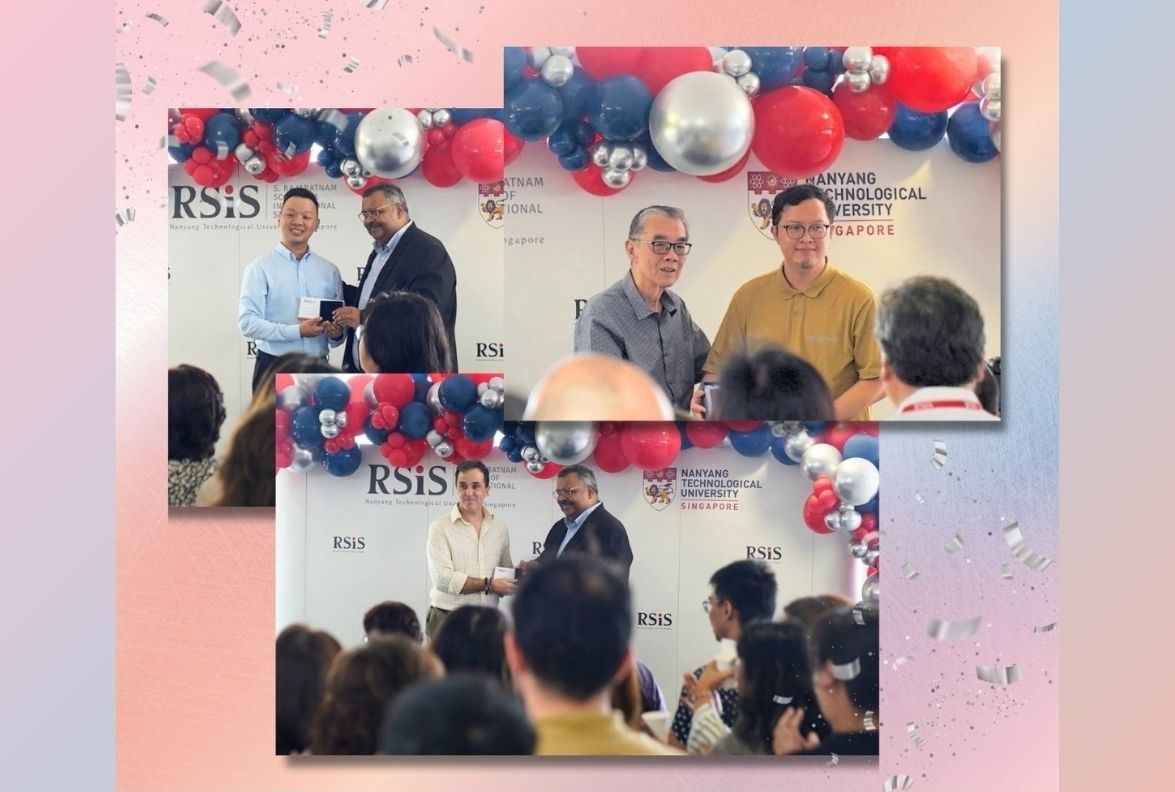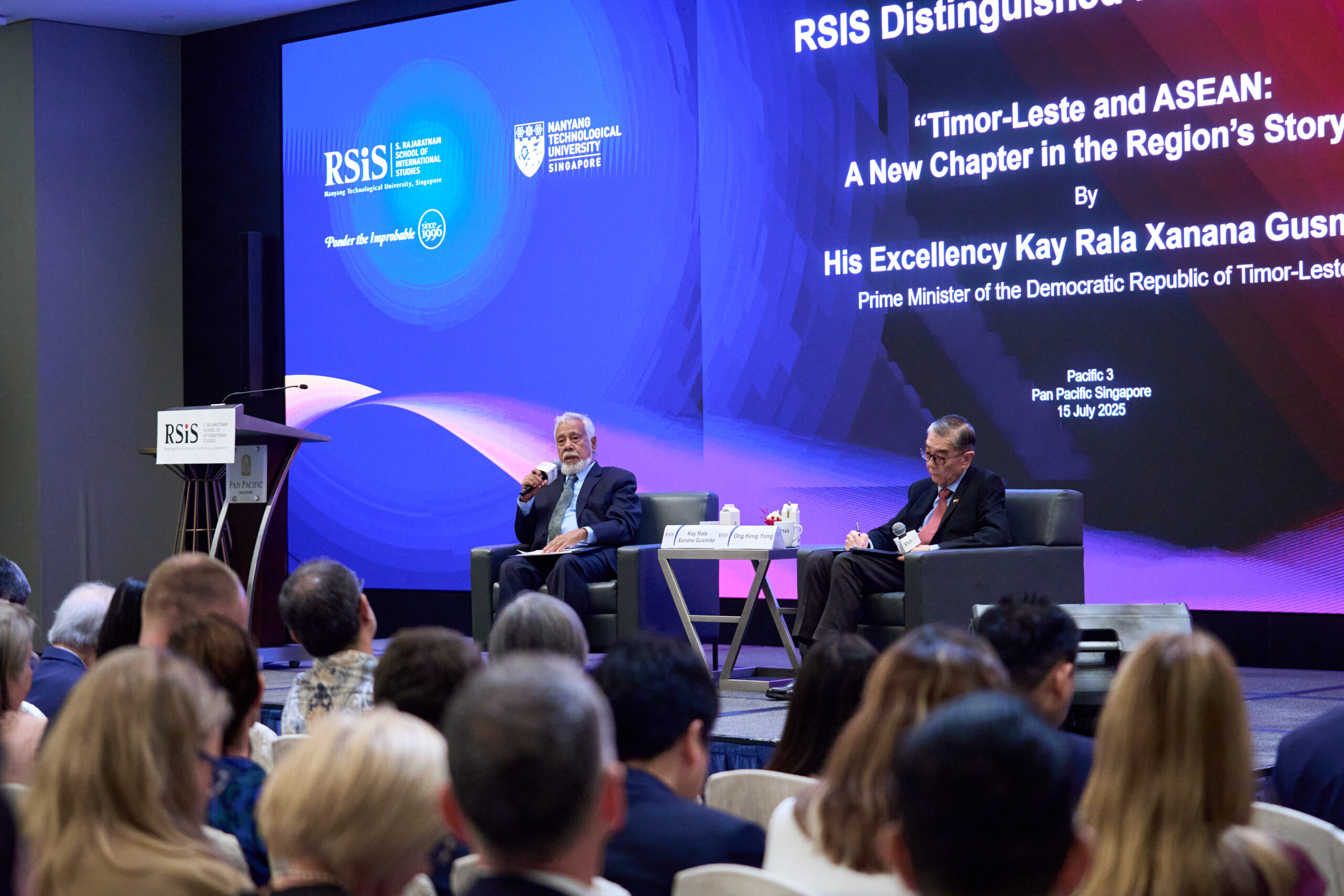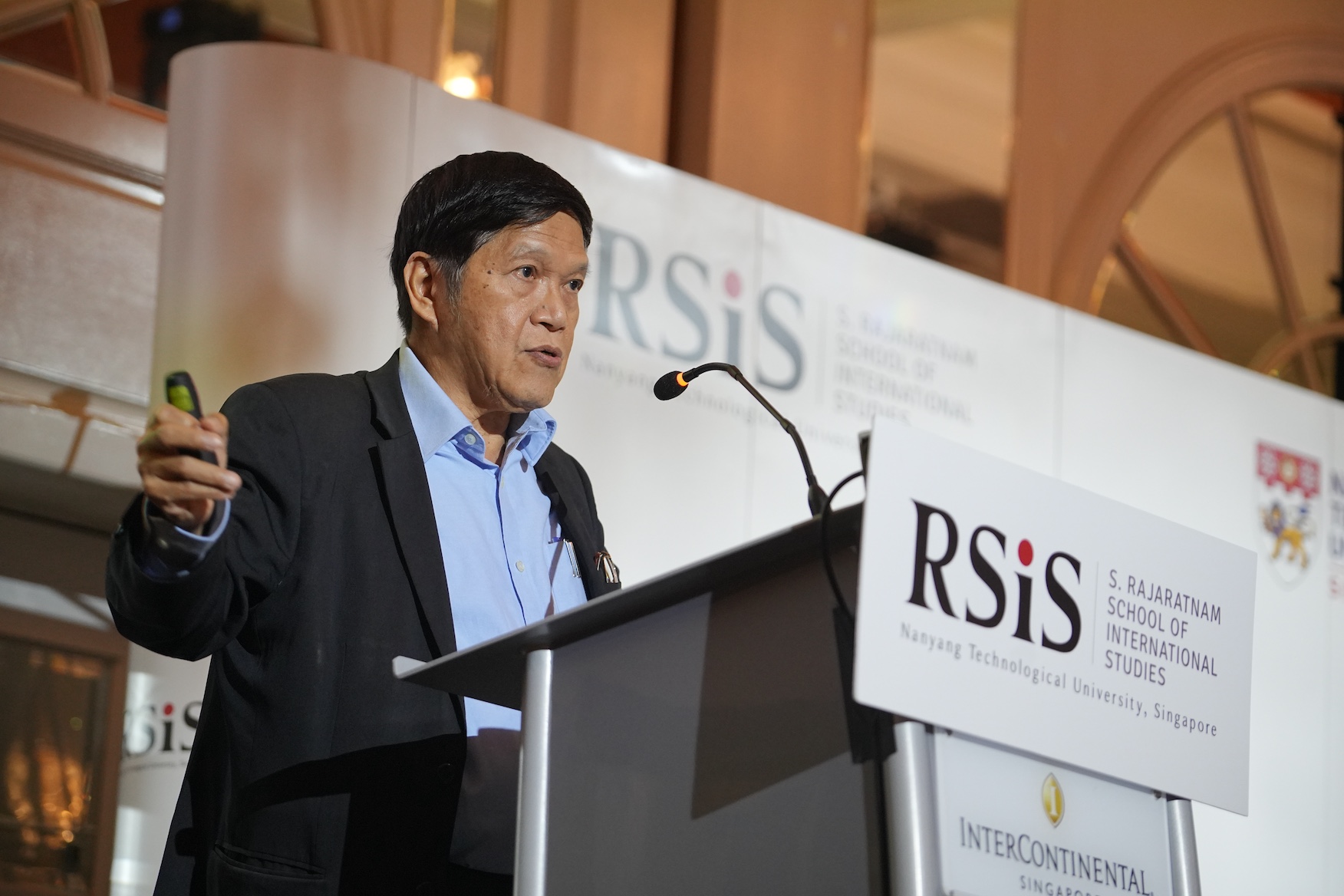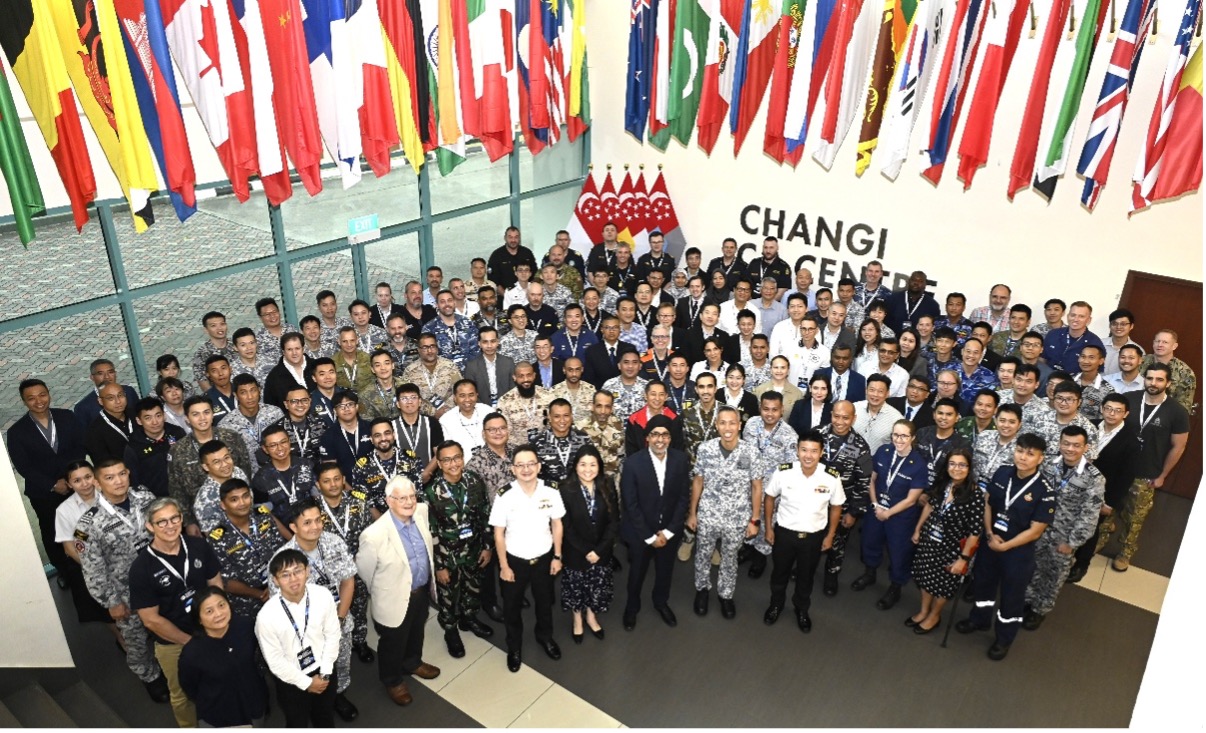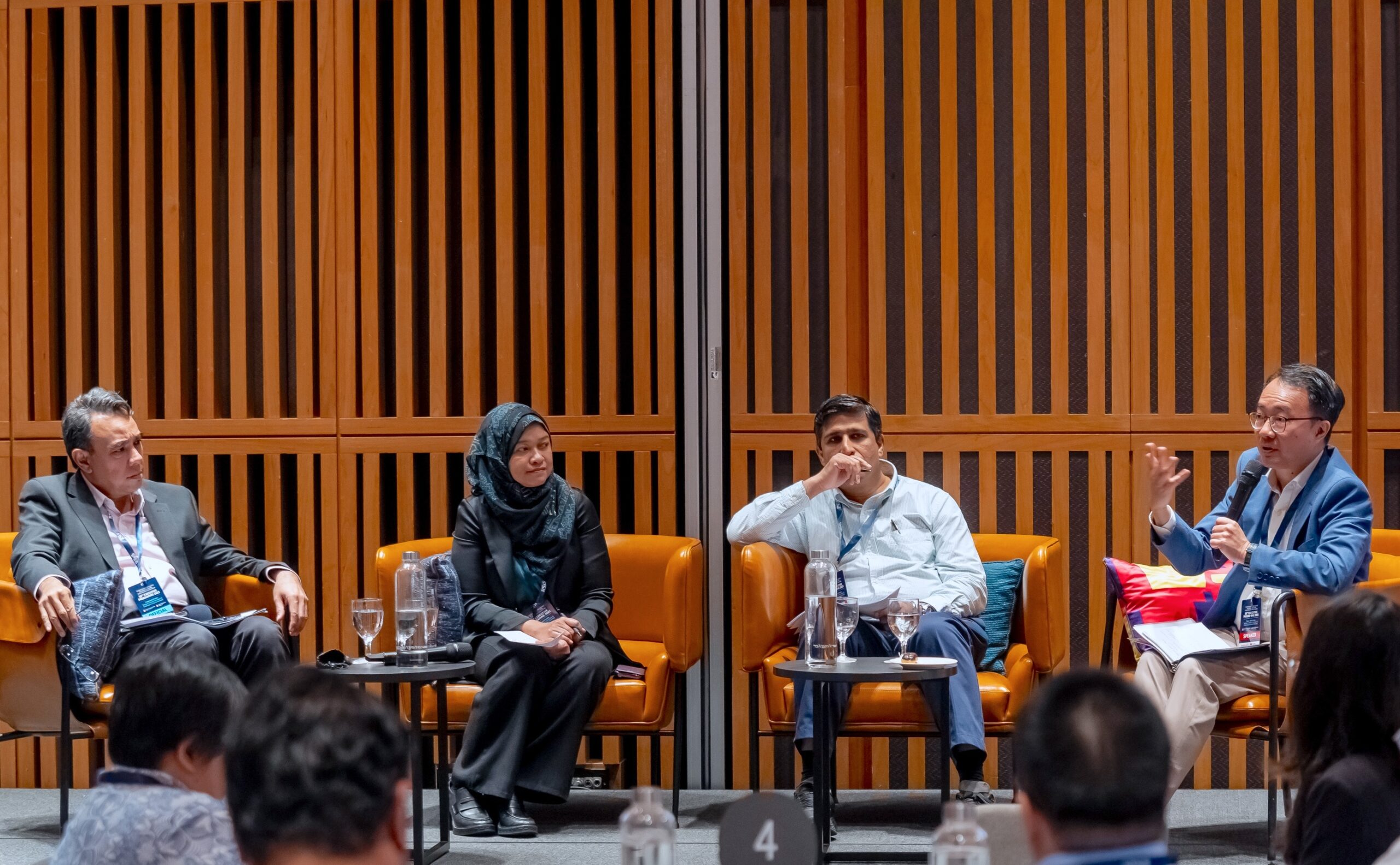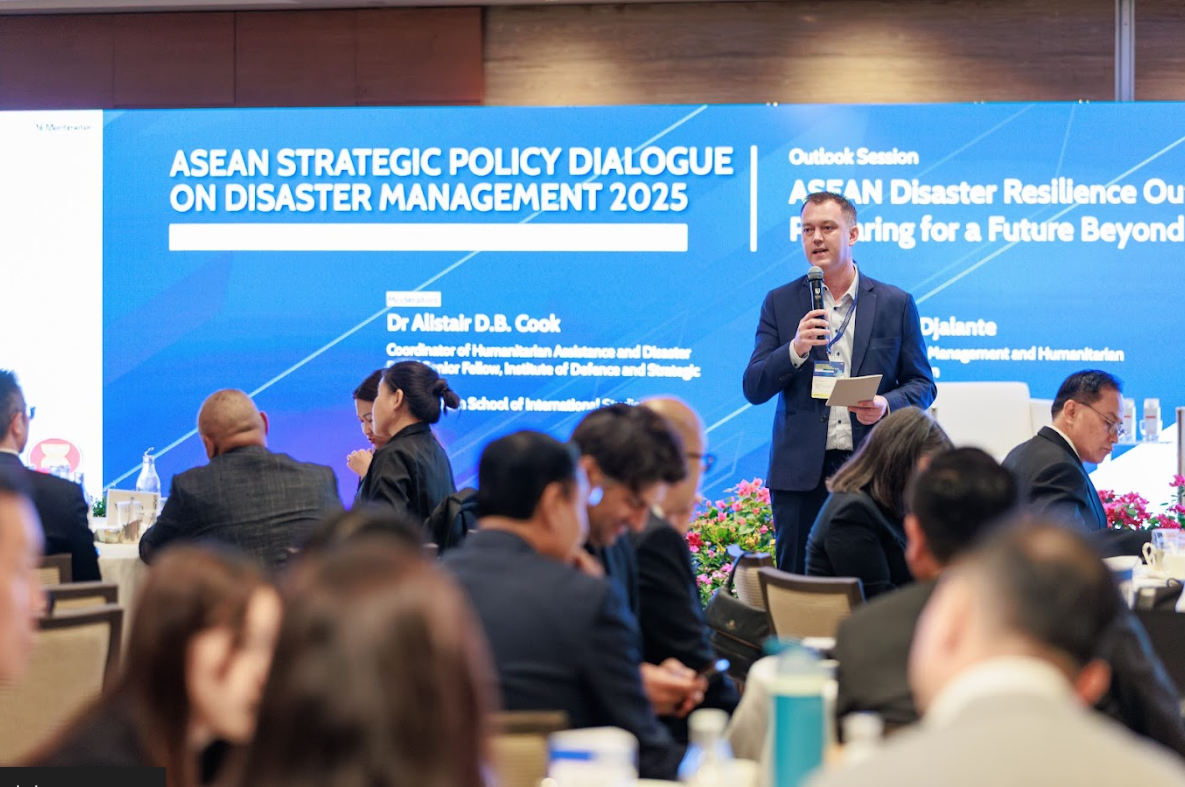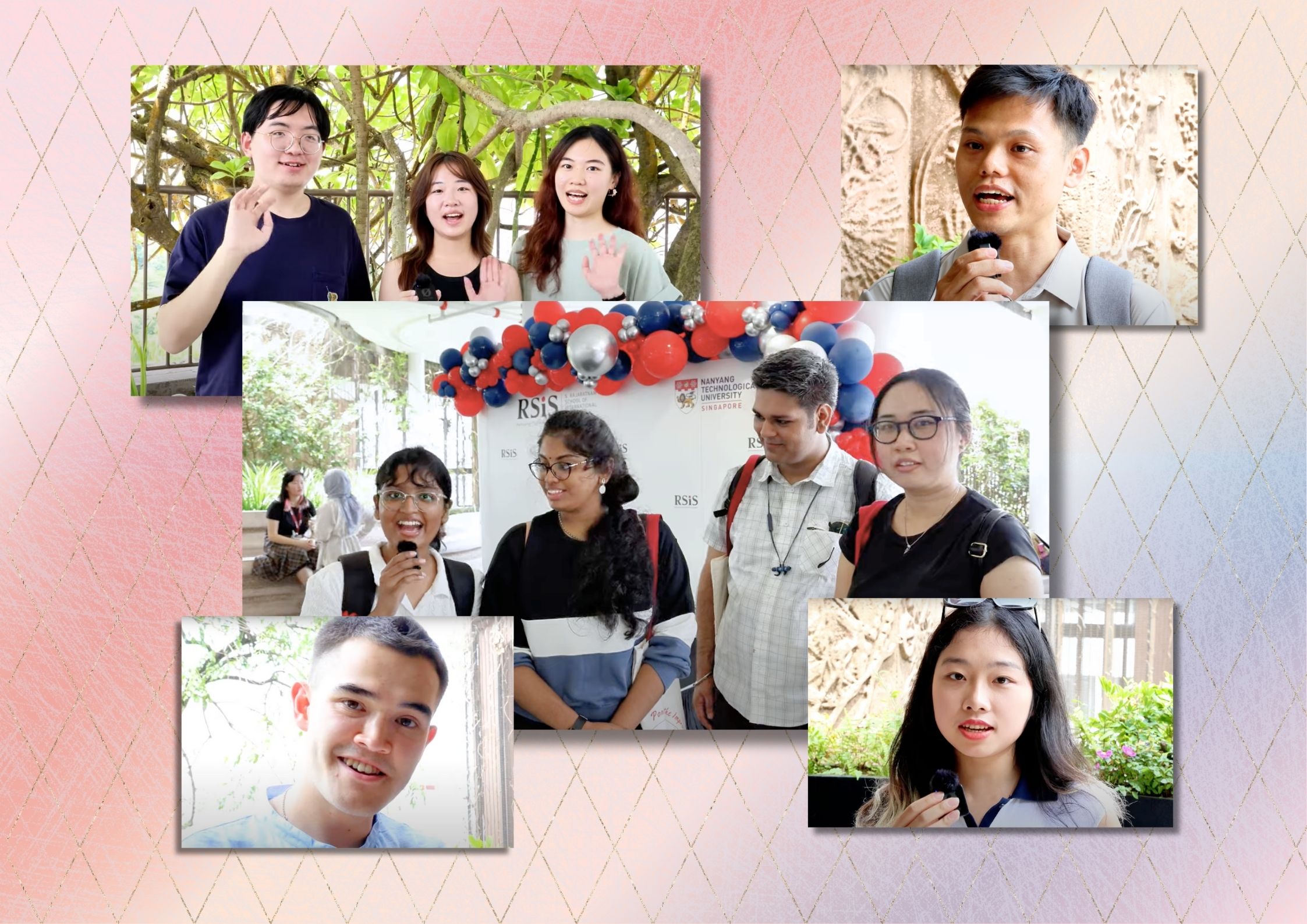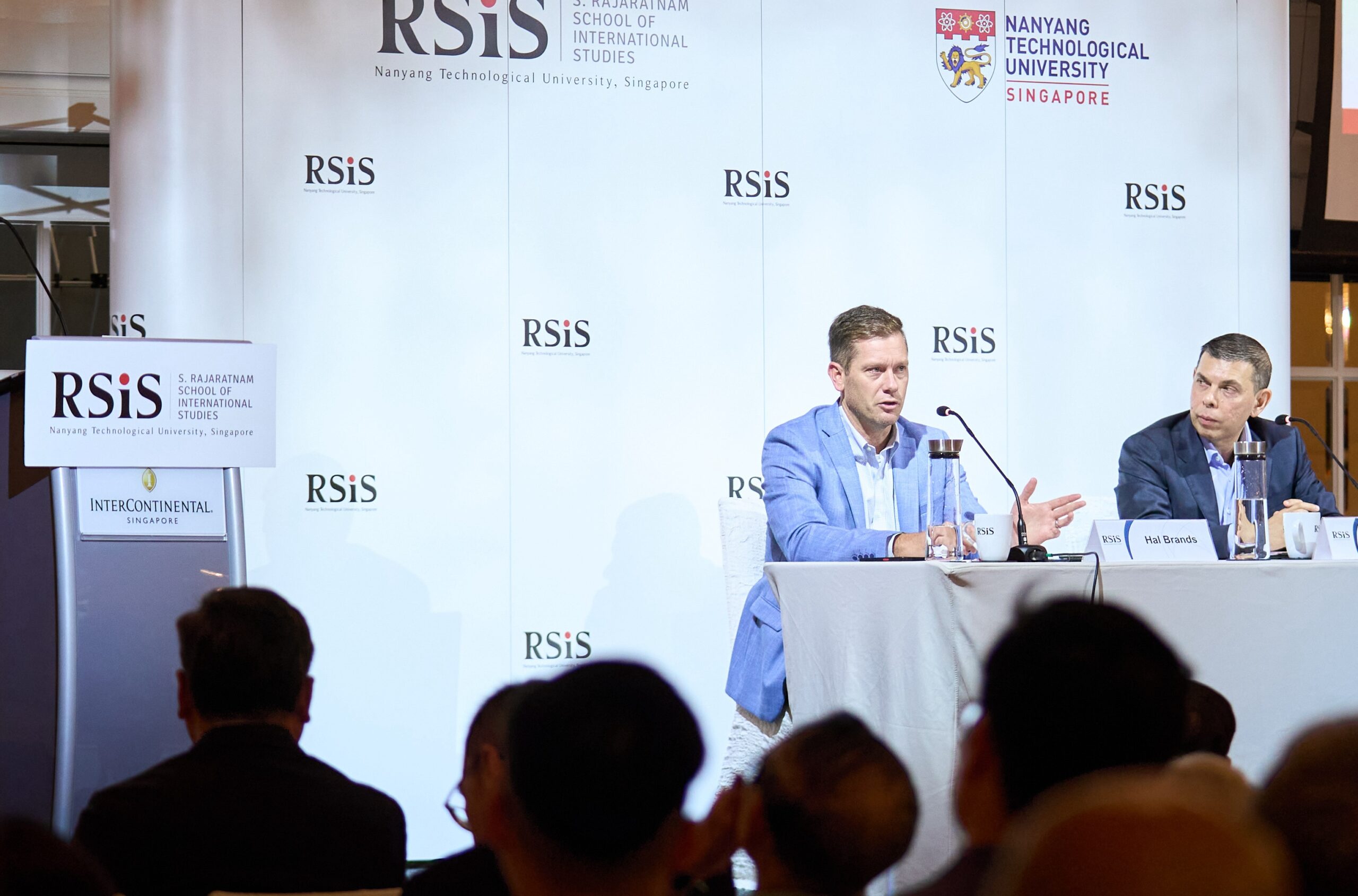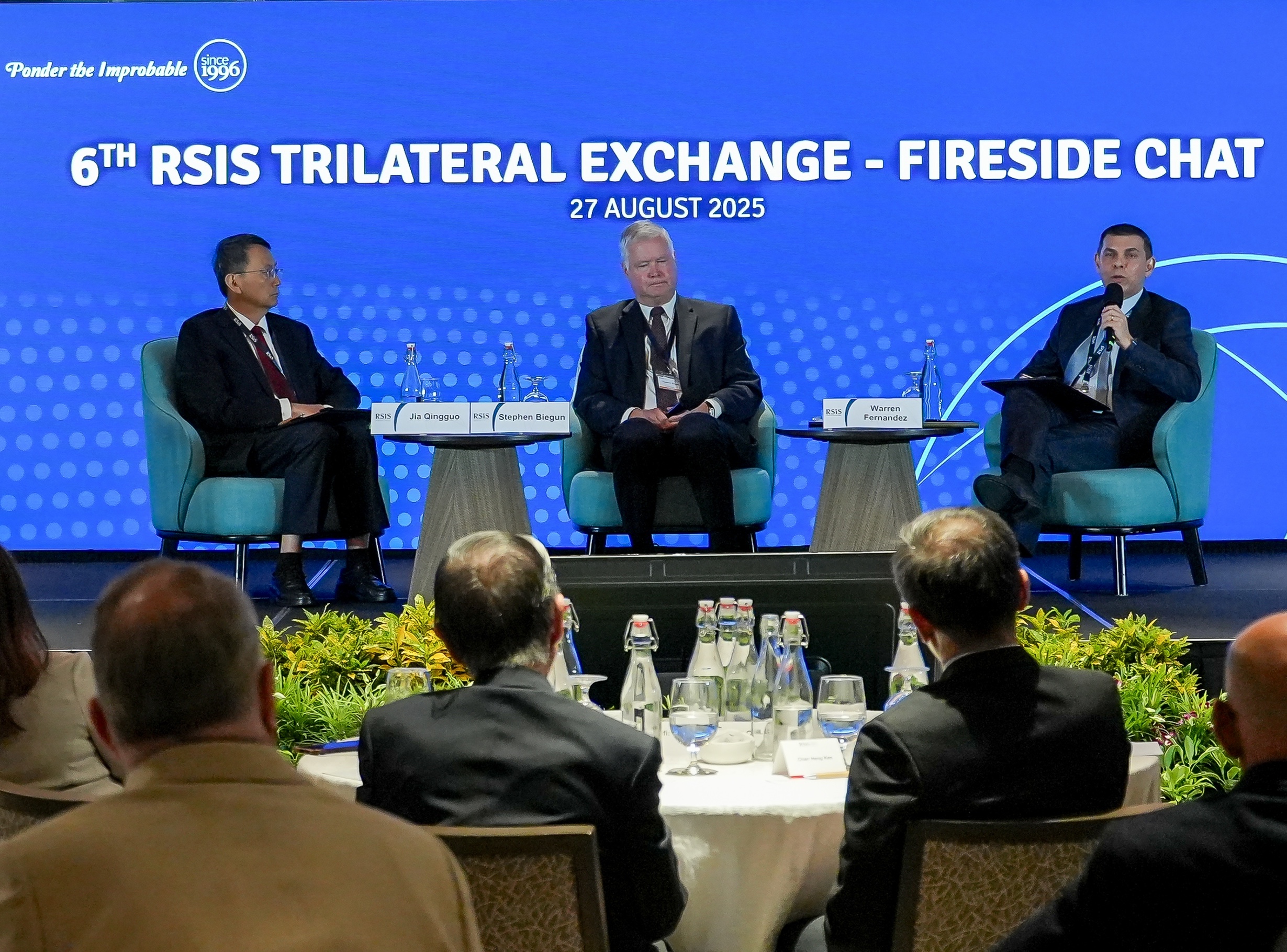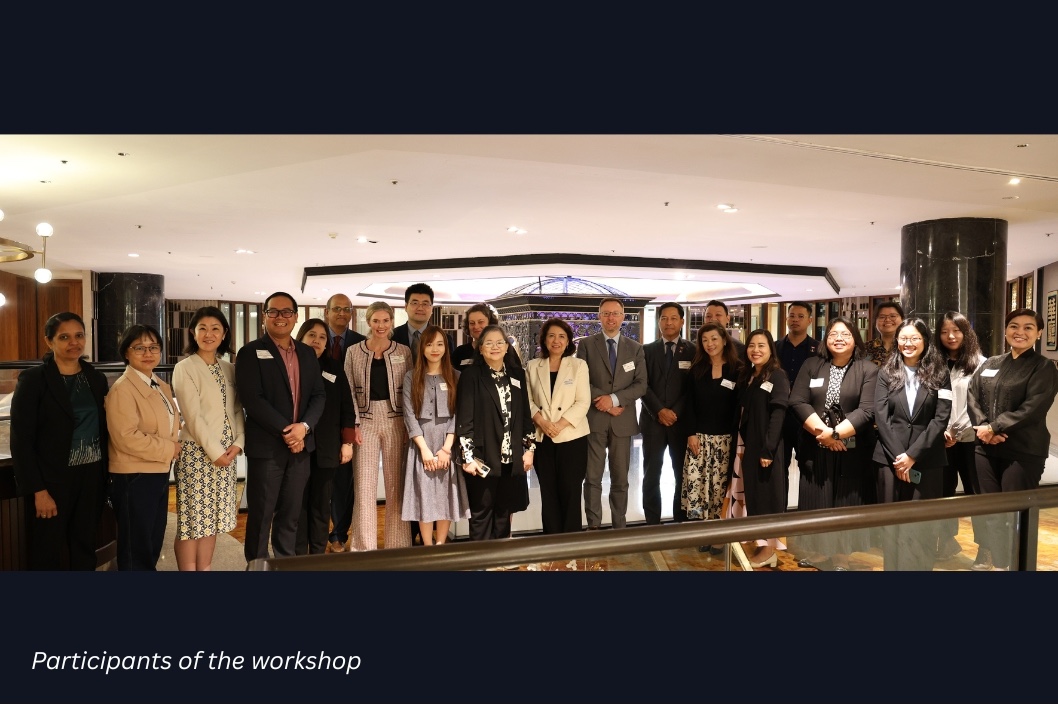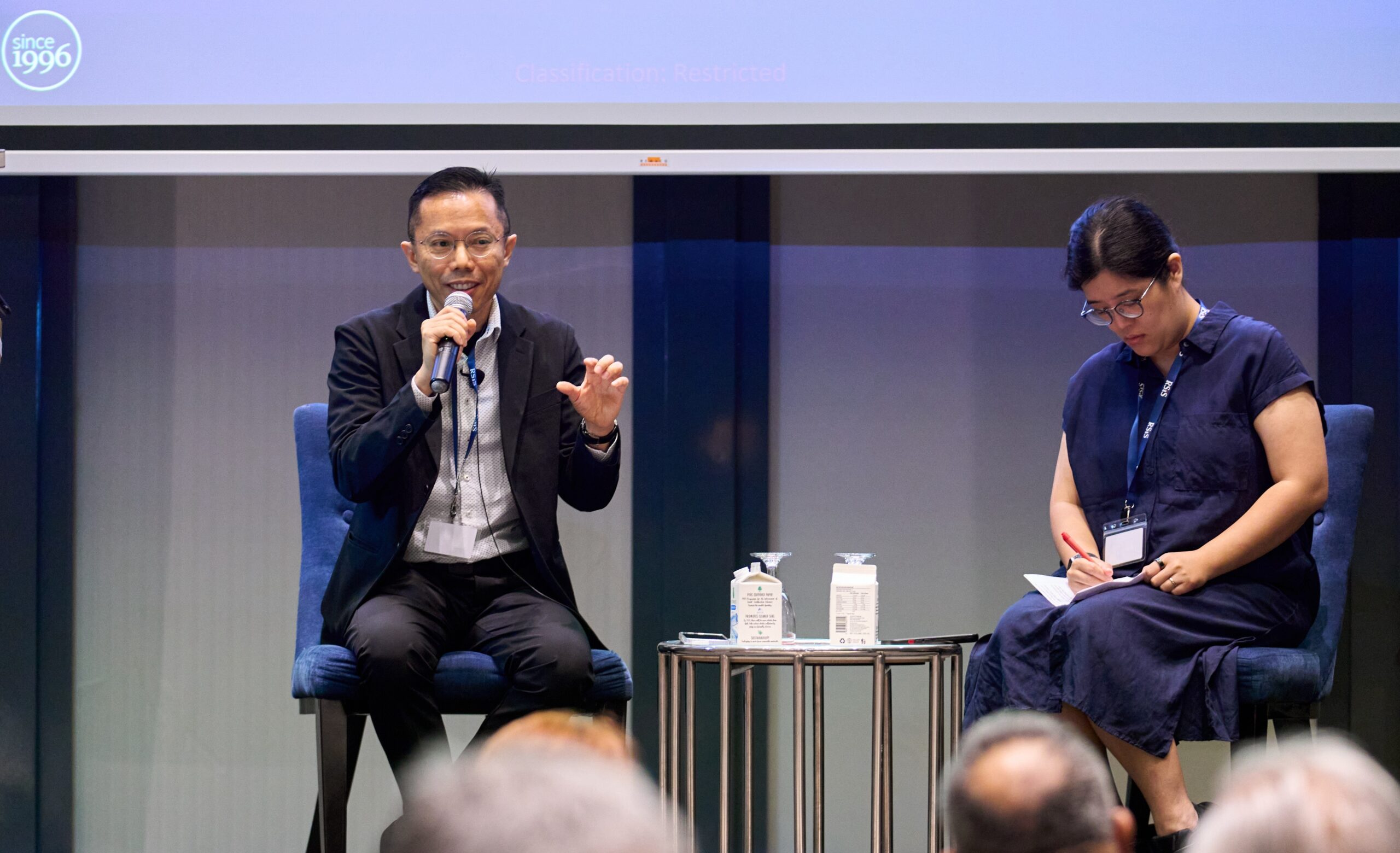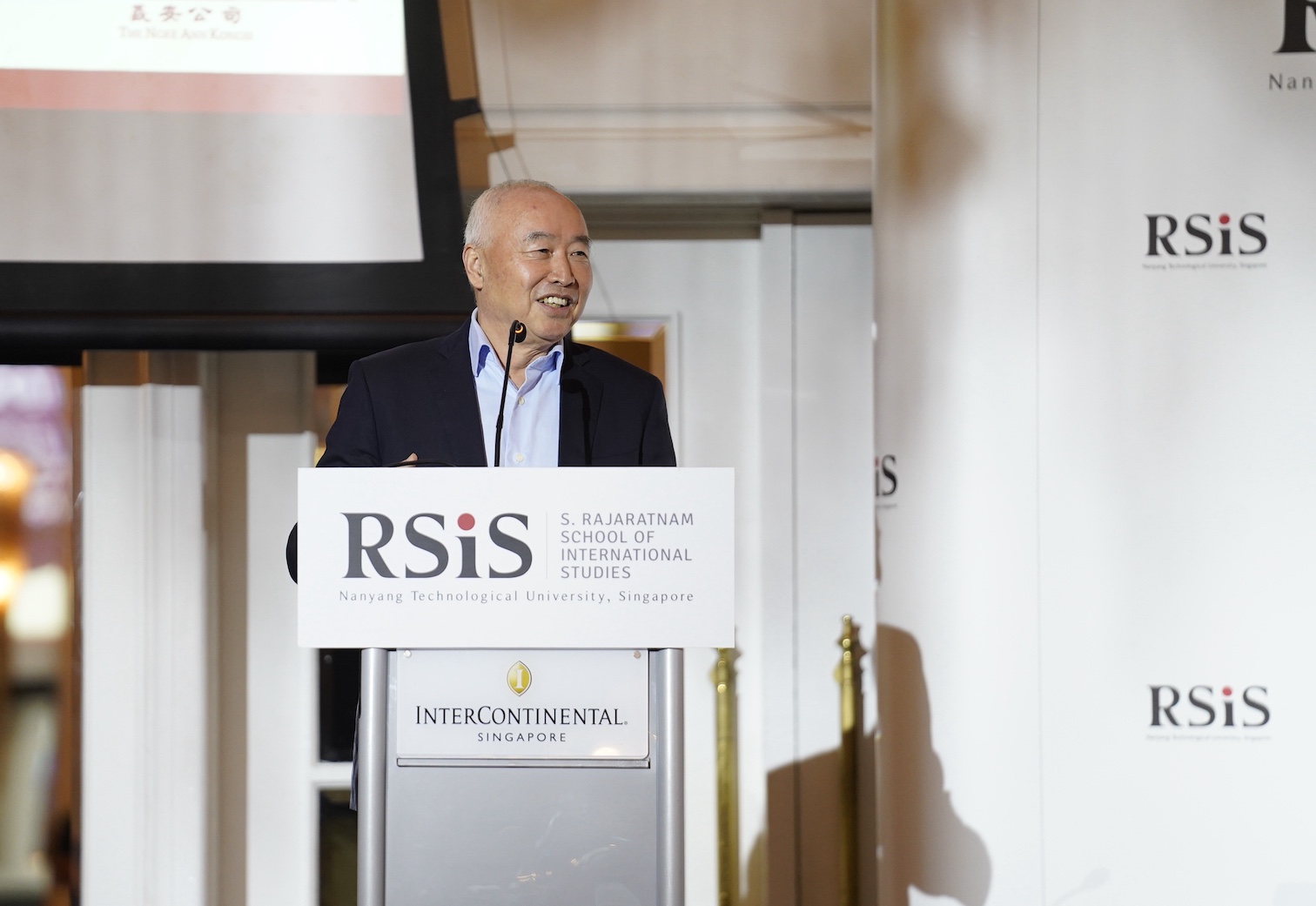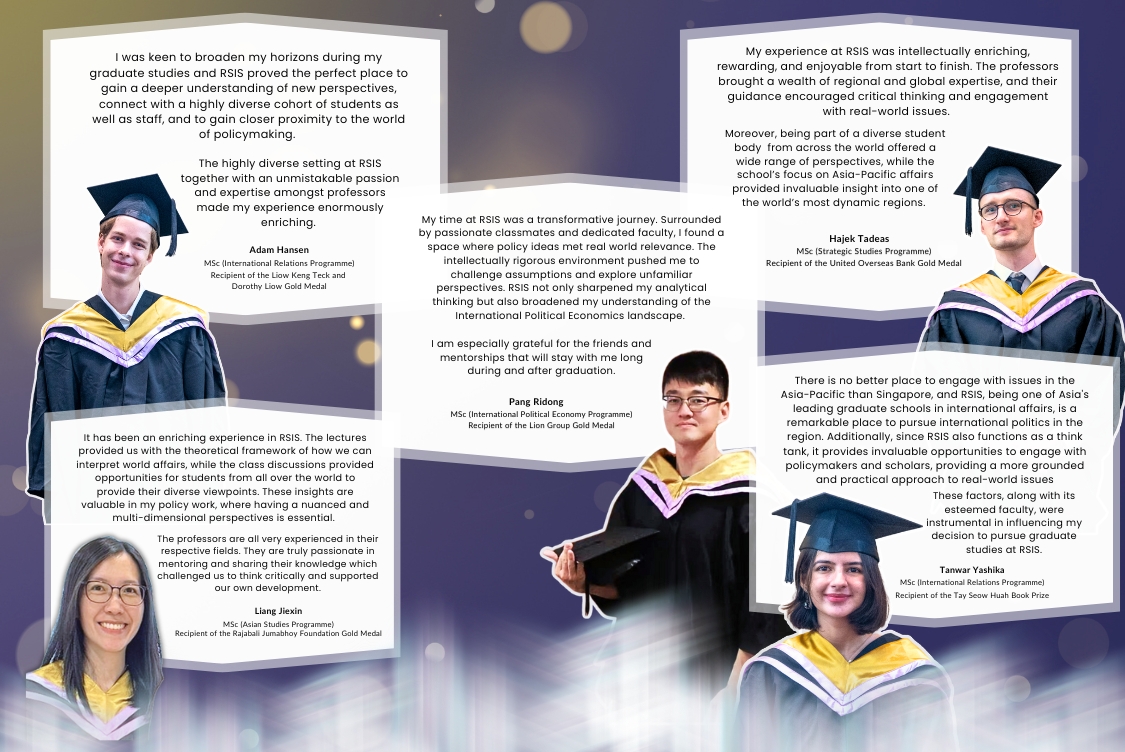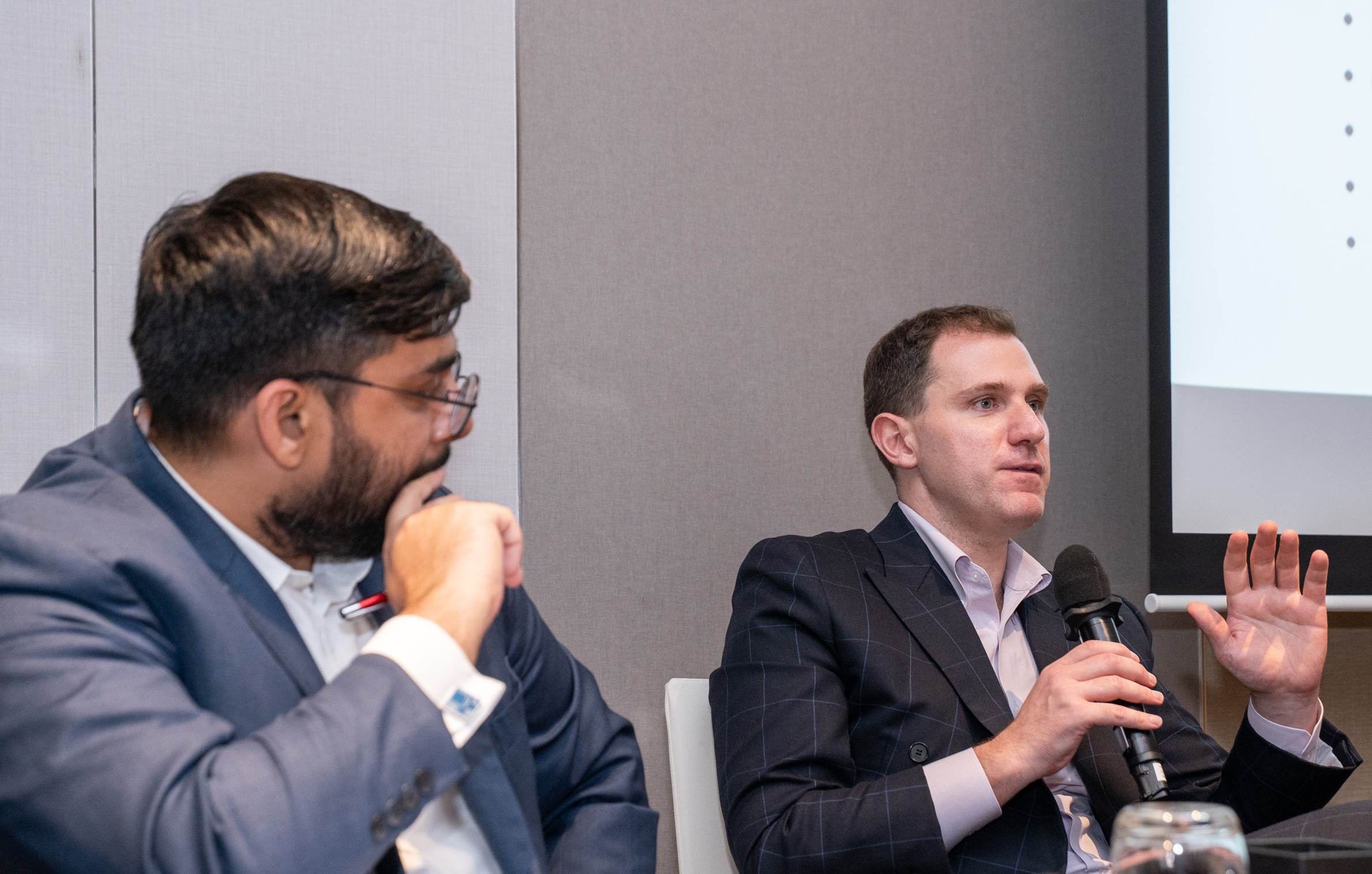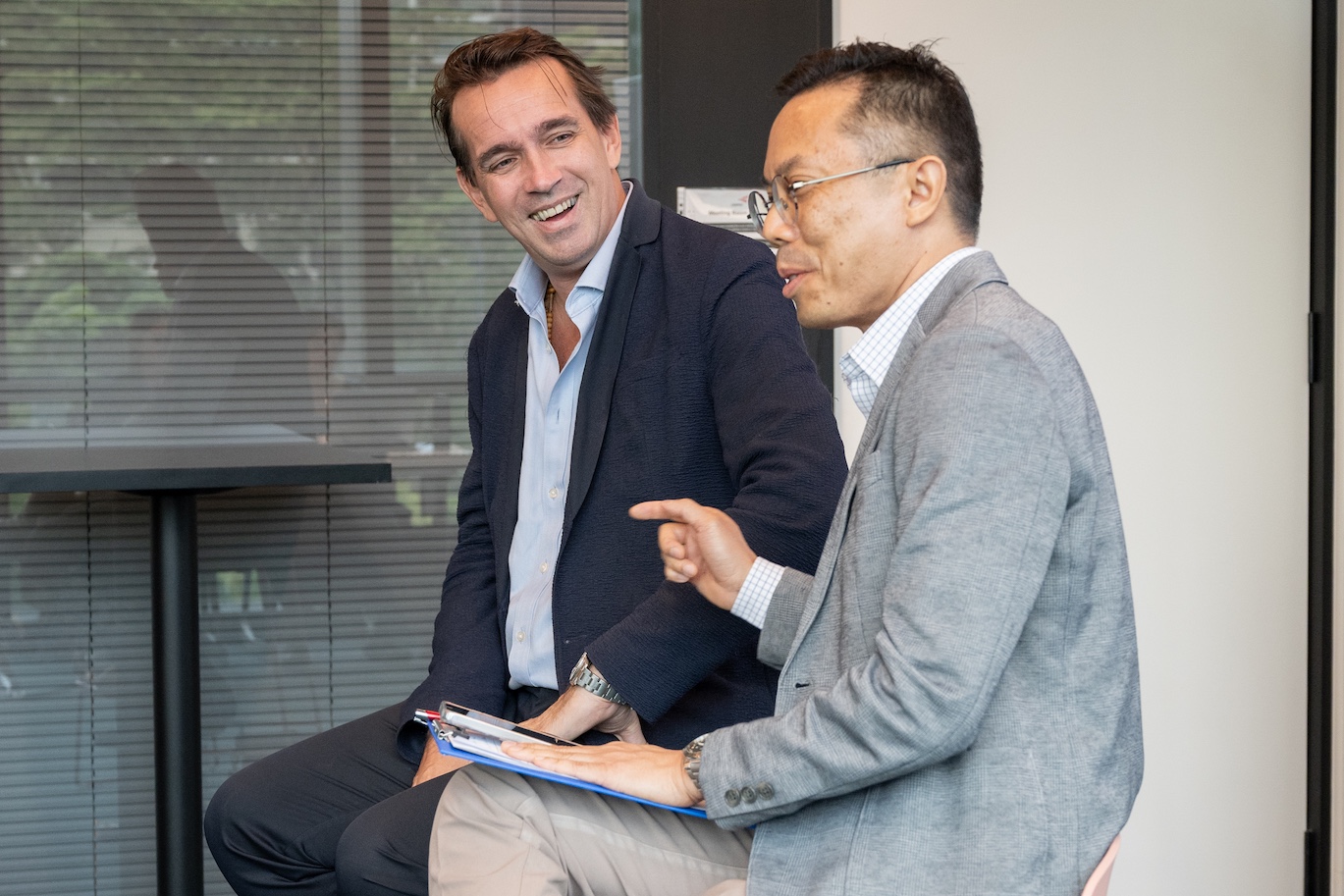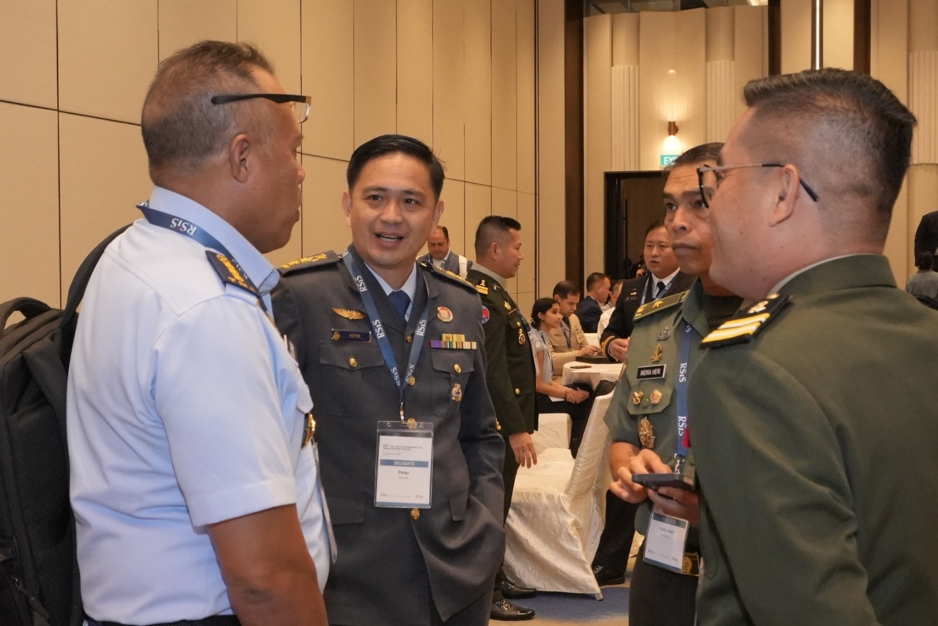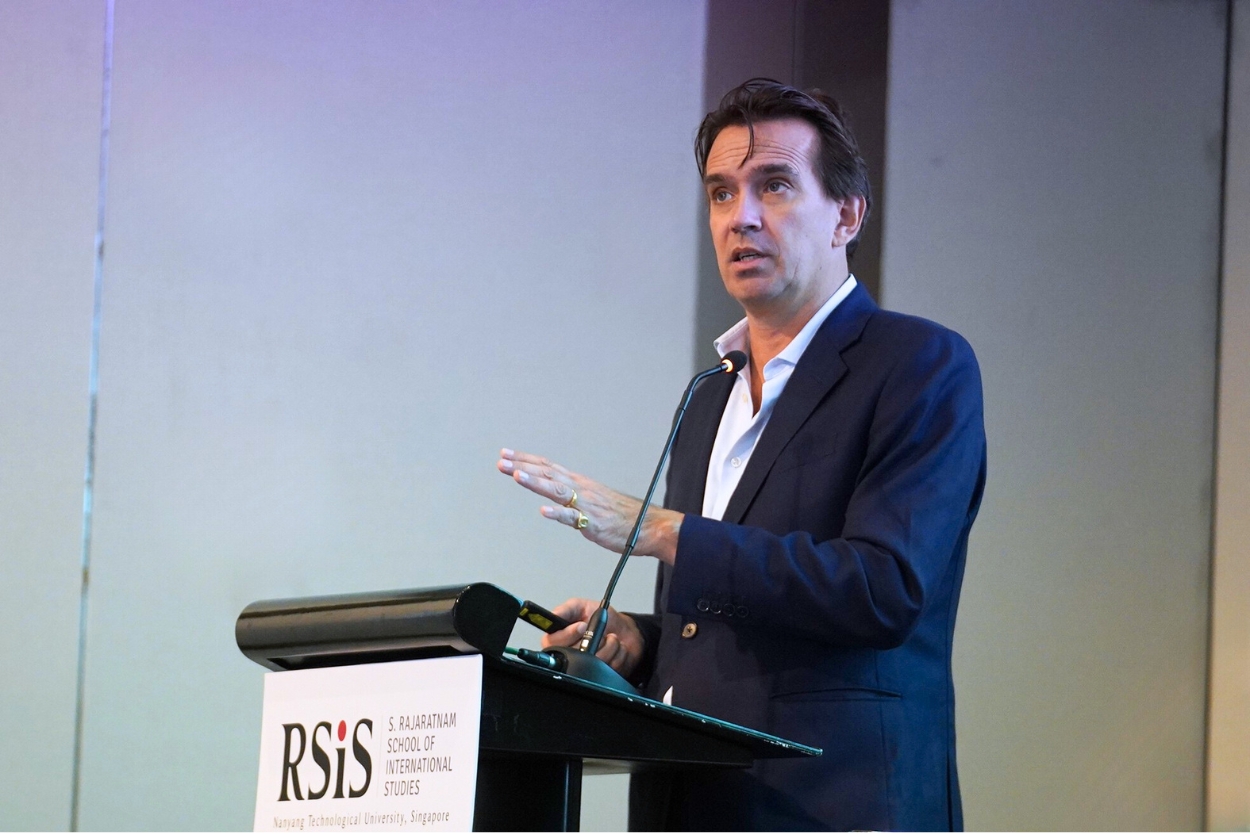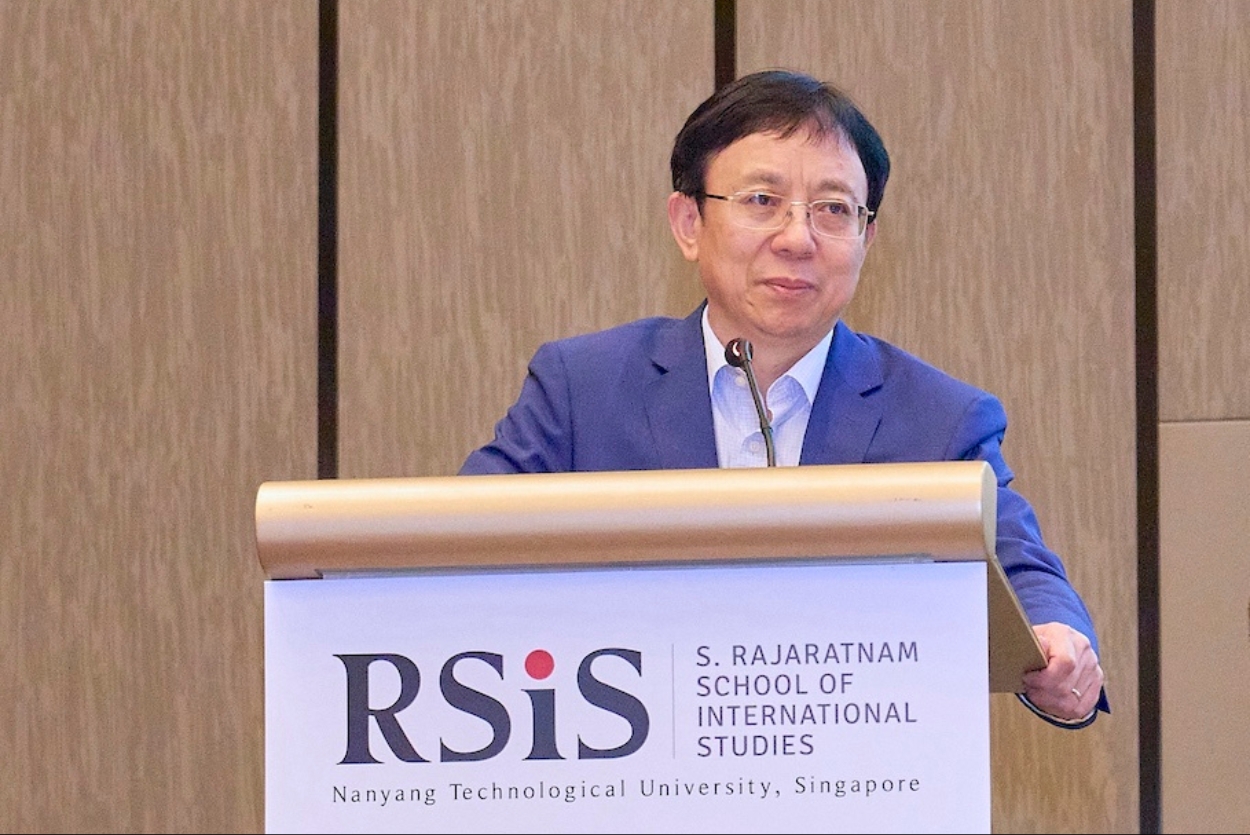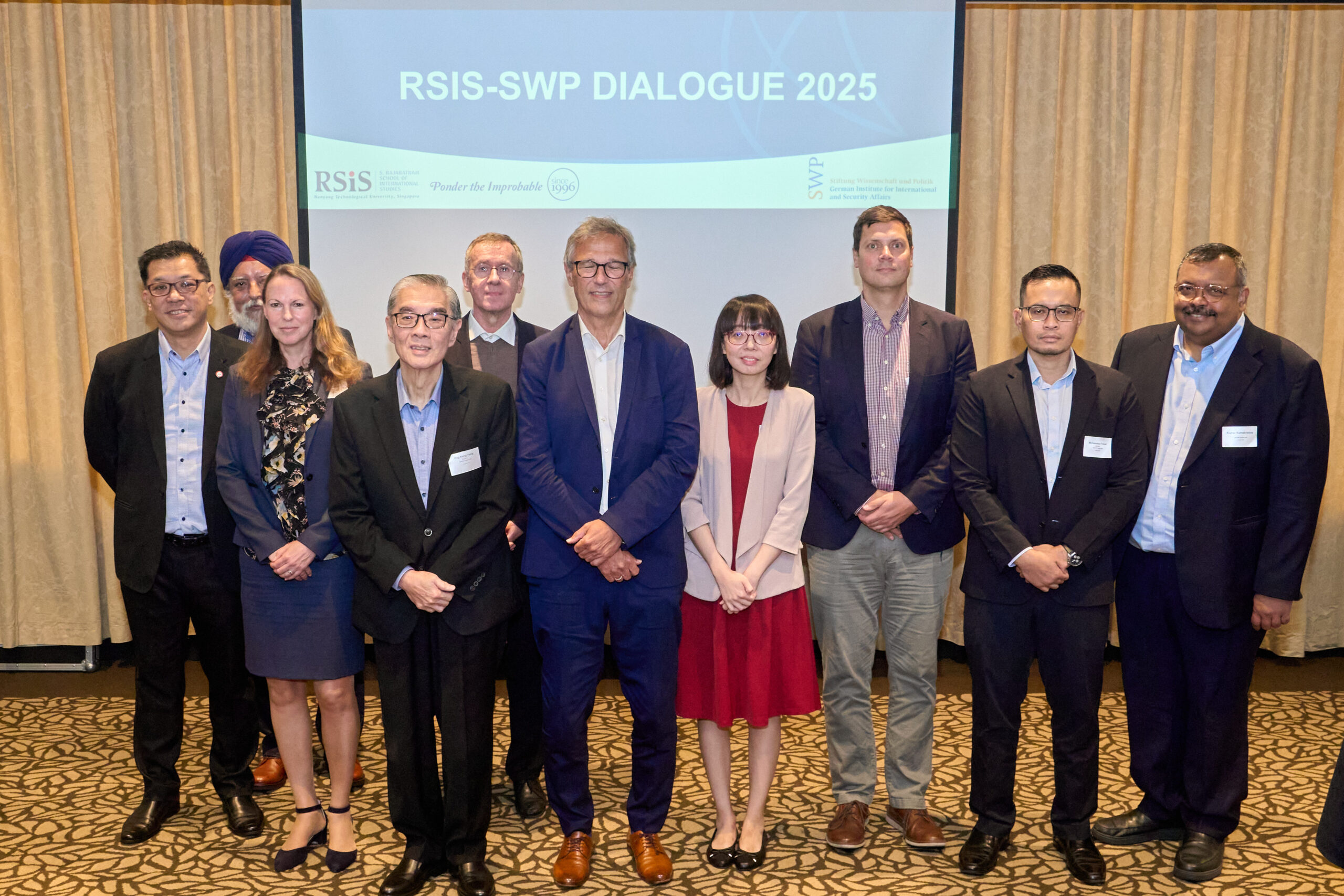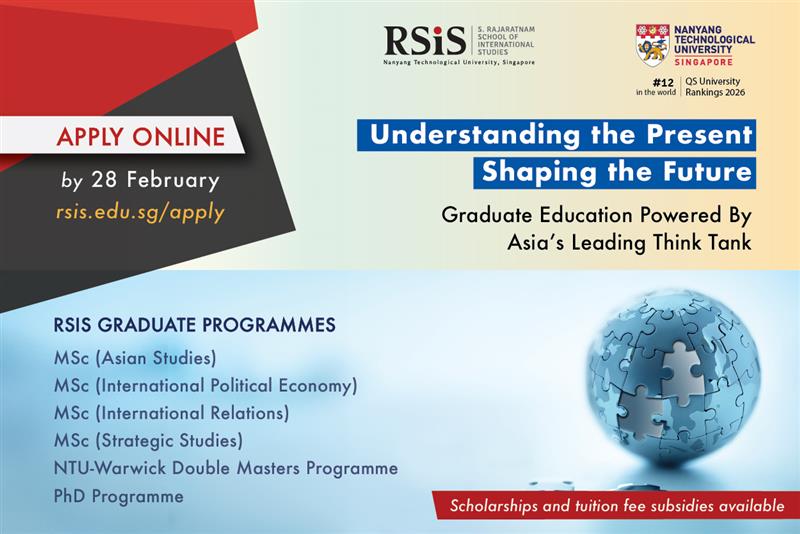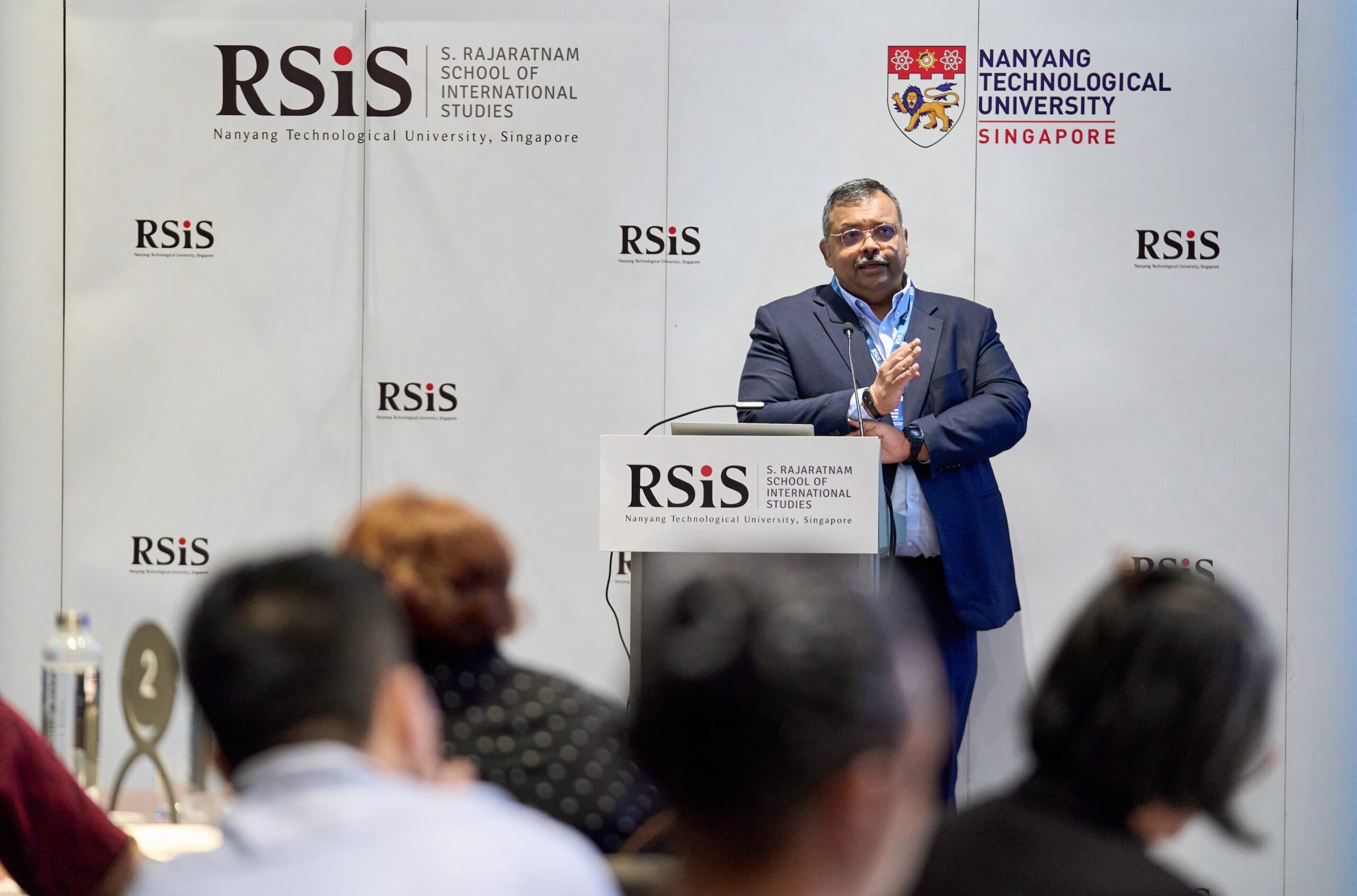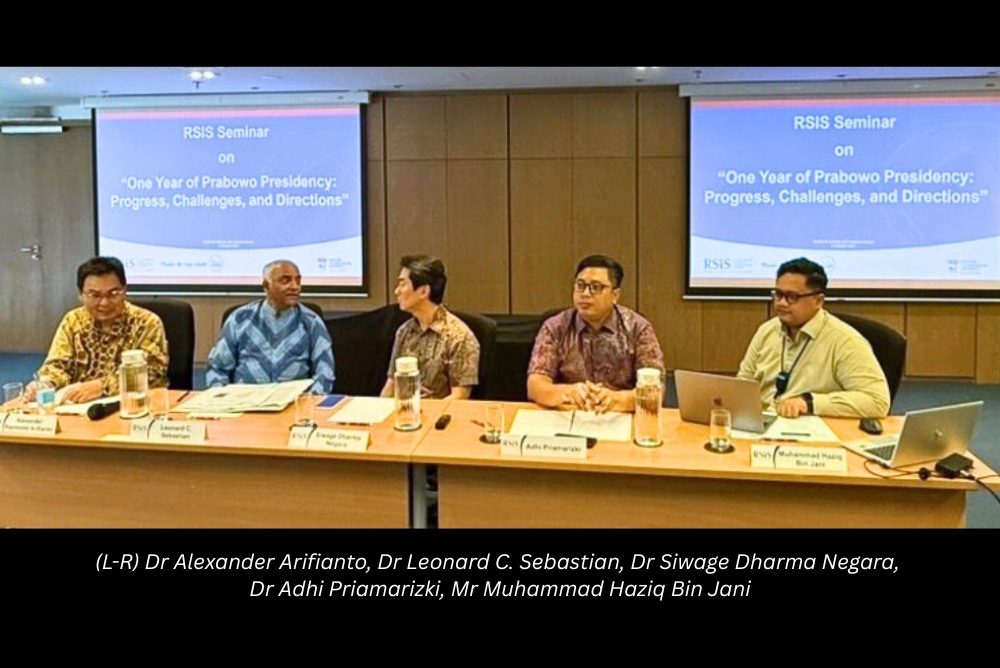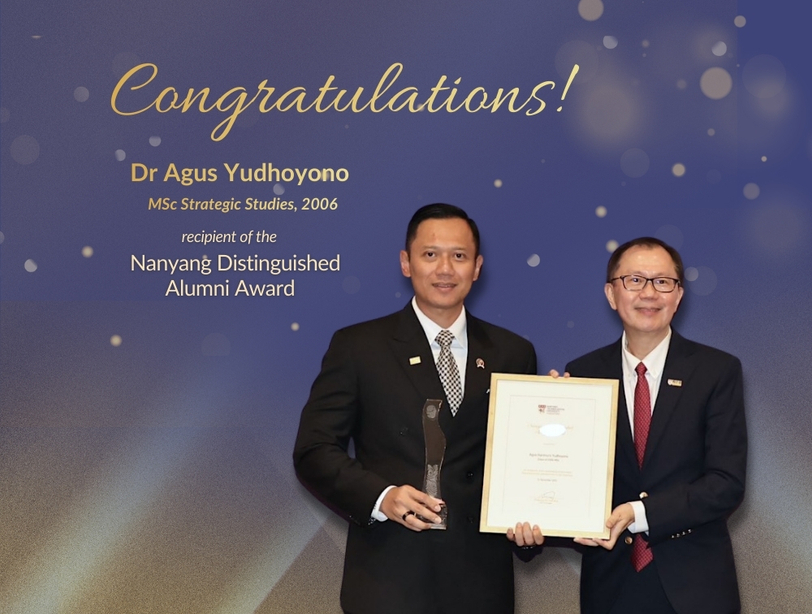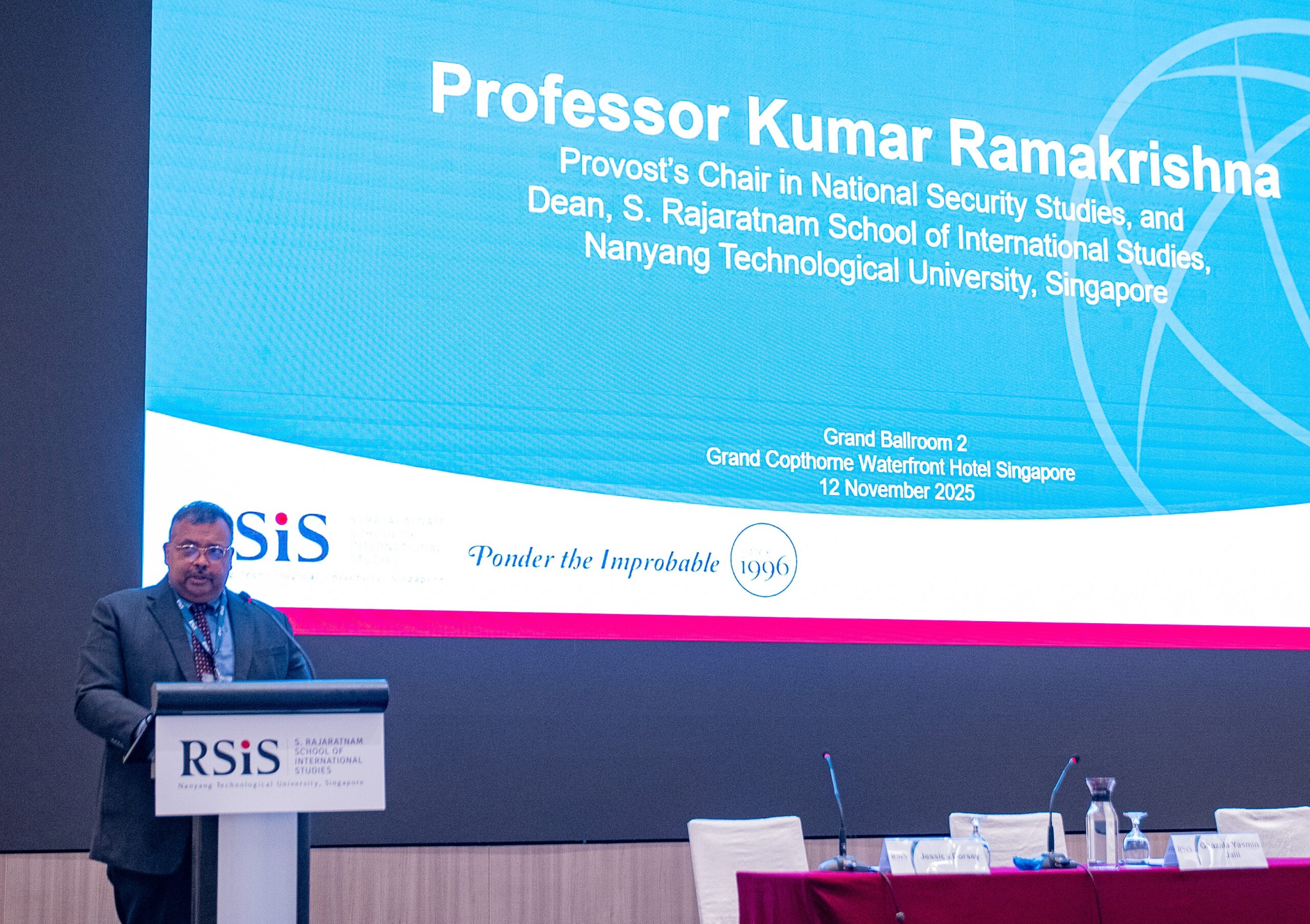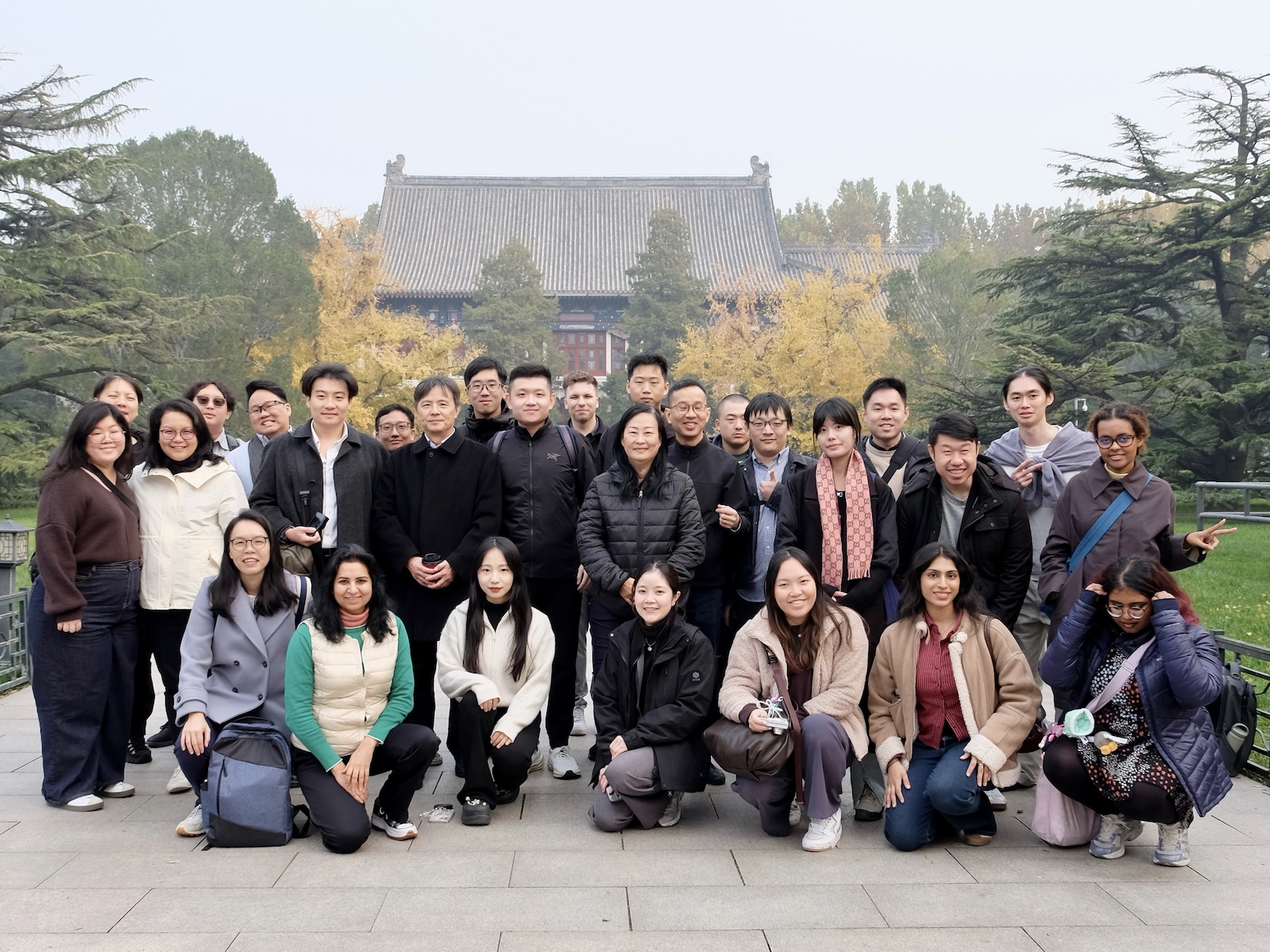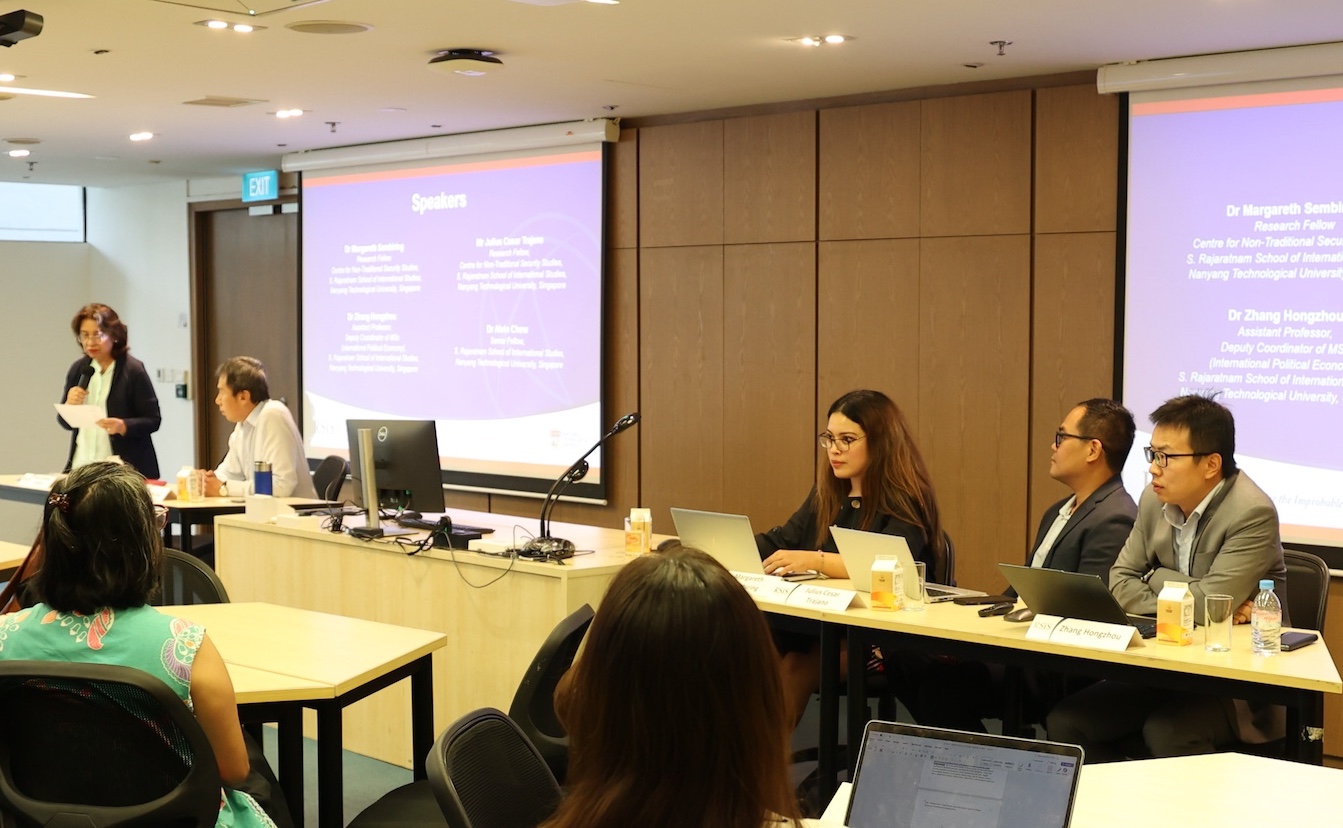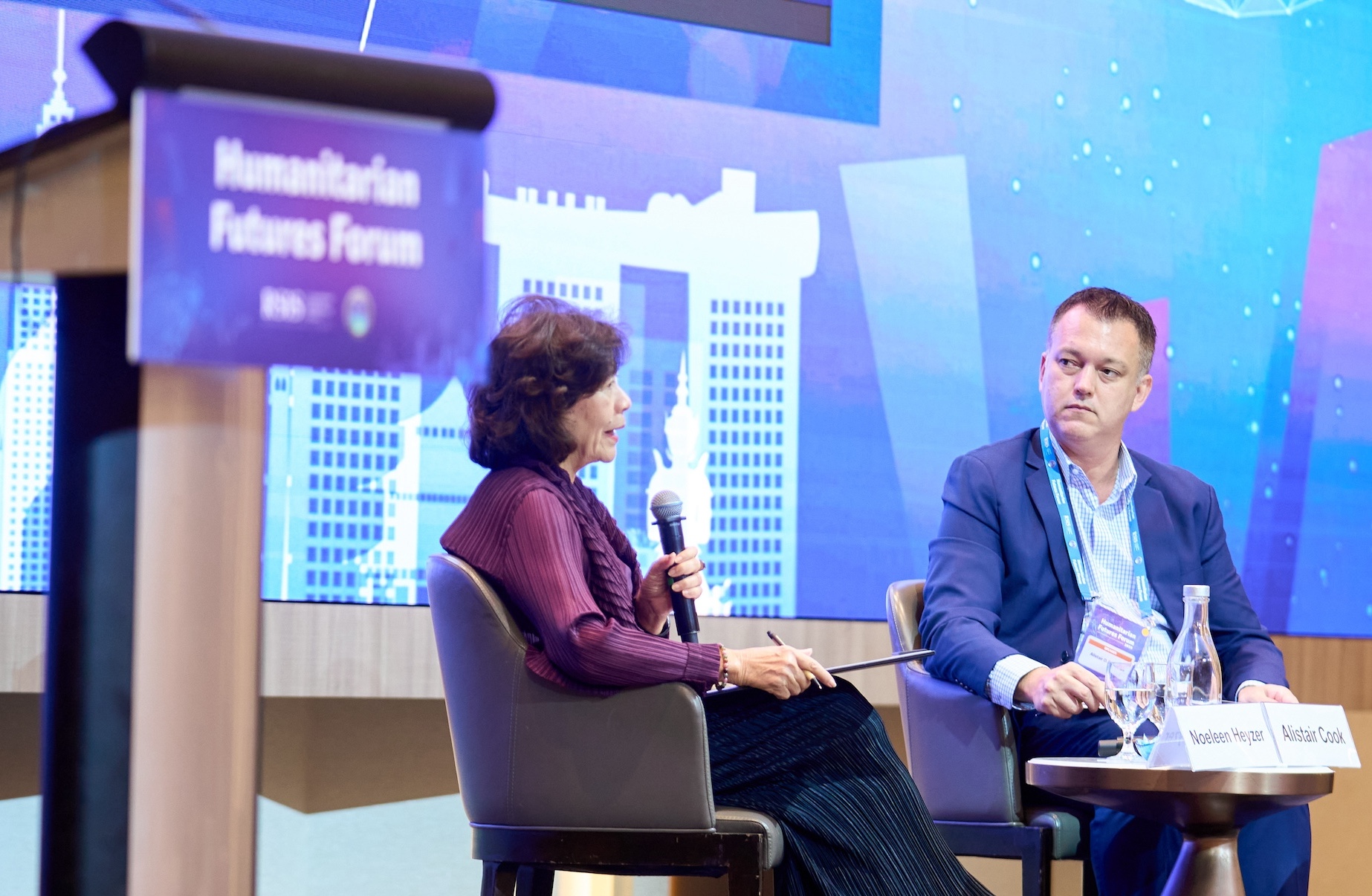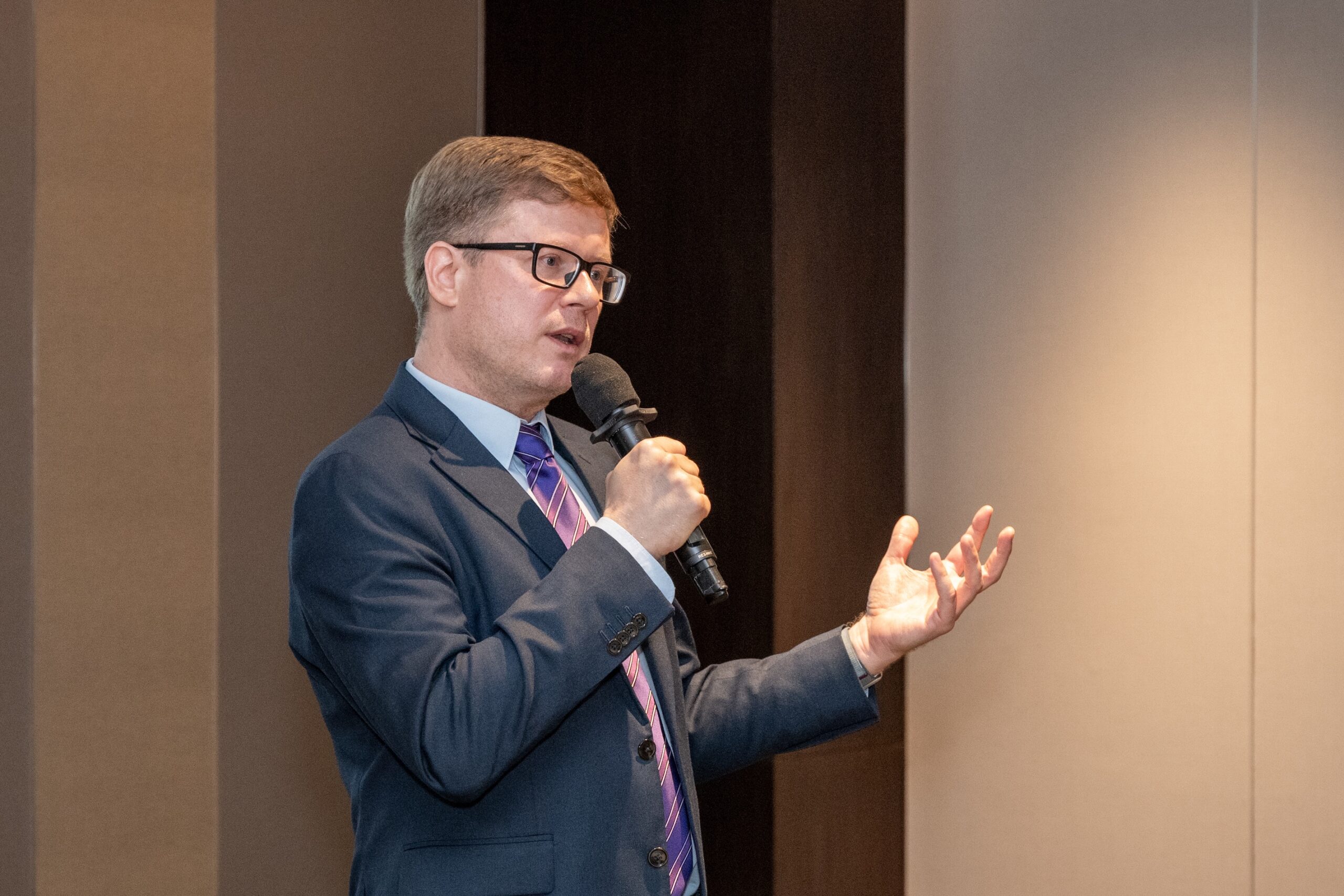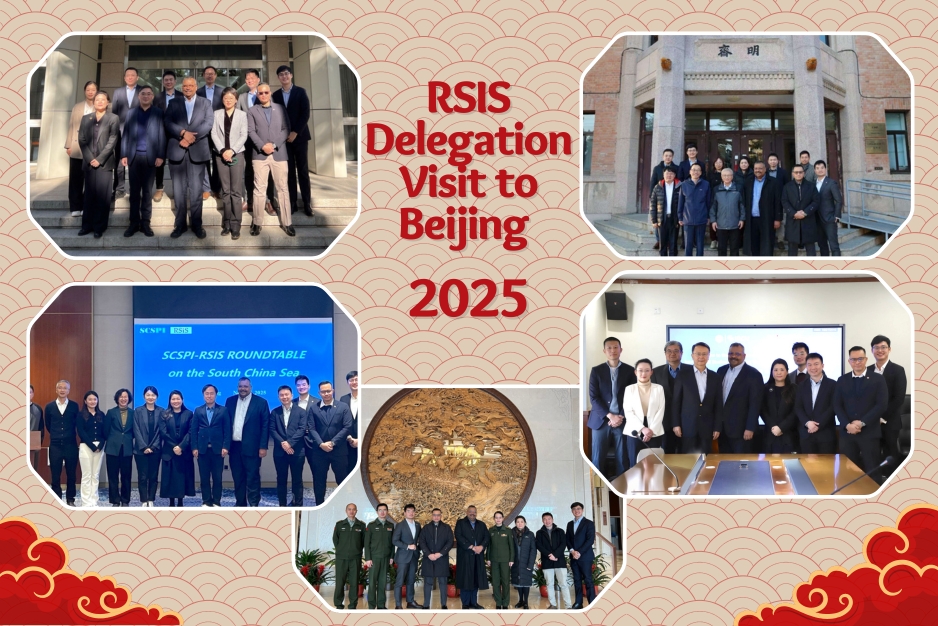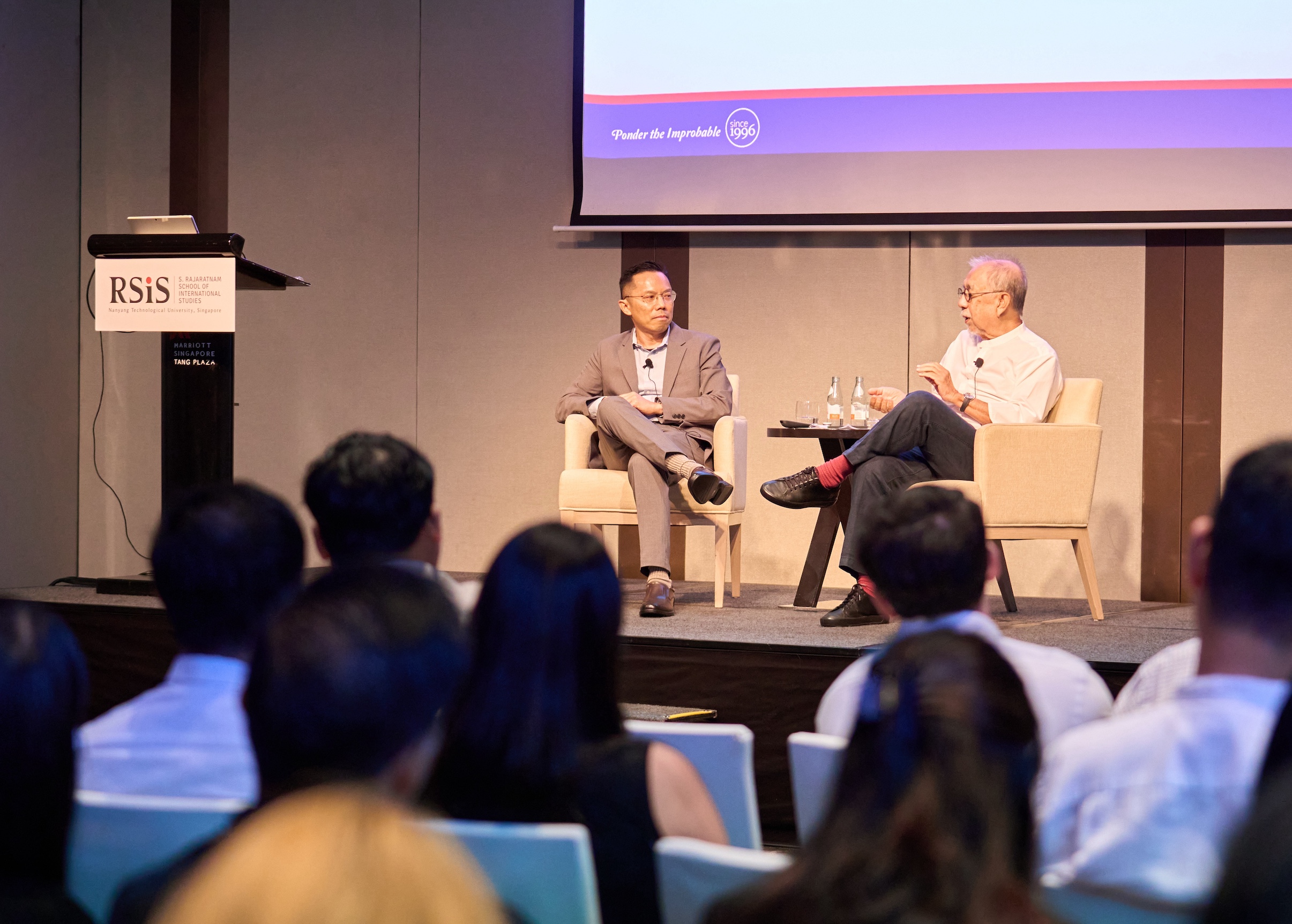
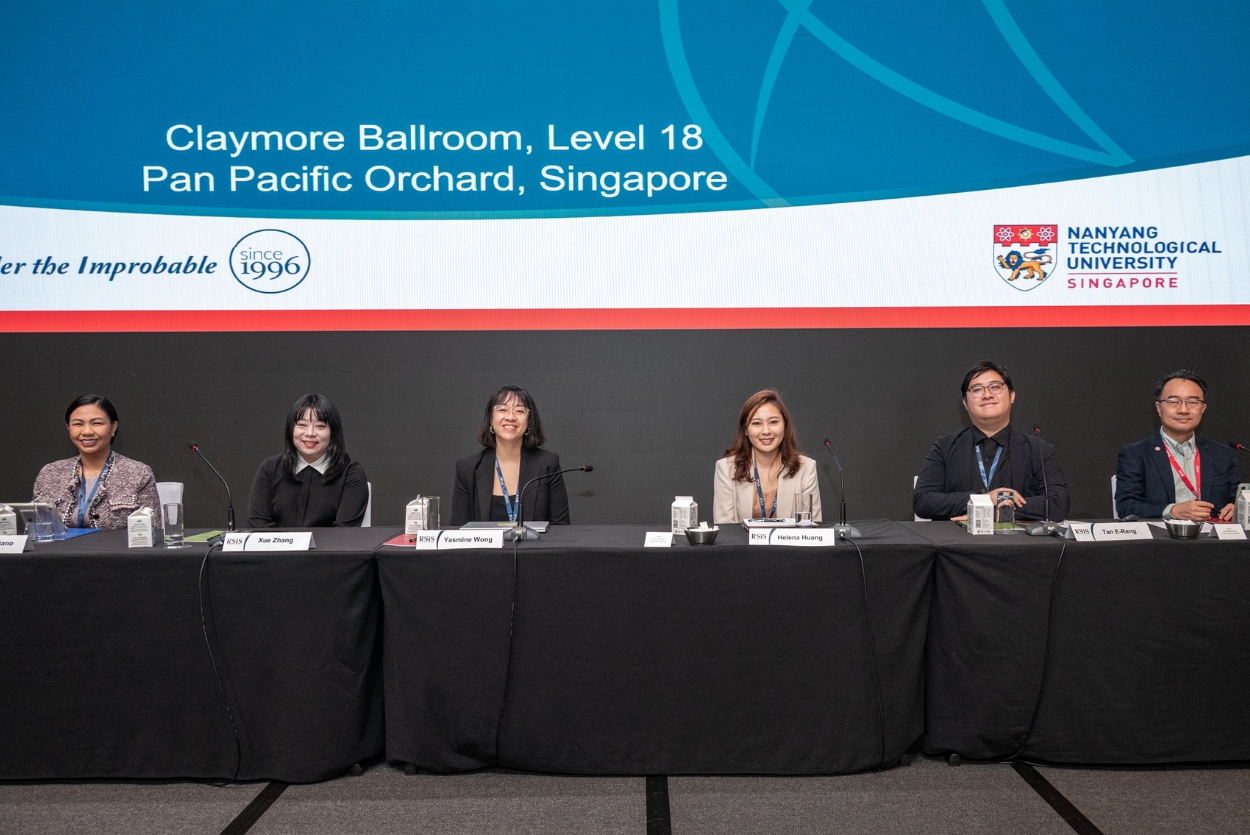
The Centre of Excellence for National Security (CENS) organised its annual Disinformation, Rumours, Untruths, Misinformation and Smears (DRUMS) workshop from 28 to 29 October 2025. With the theme of “Information Manipulation and Interference Against Technological Advancements, Shifting Global Power Dynamics and Ongoing Conflicts”, the workshop attracted around 230 participants from government agencies, academia, and other non-governmental groups International and regional speakers spoke on trends in the information landscape, use of Artificial Intelligence (AI) for strategic communications, global case studies on information manipulation and interference and strategies to manage disinformation.
The keynote speaker, Clint Watts, General Manager of Microsoft Threat Analysis Center, elaborated on how foreign malign influence is entering its second decade with the deployment of generative AI and the potential impact of a new era of AI-first threat actors.
In the first panel on Trends in Information Landscape, Dr Carol Soon, Deputy Head and Associate Professor (Practice) at the Department of Communications and New Media at the National University of Singapore, presented her research highlighting Singaporeans’ attitudes and perceptions towards online falsehoods and AI. Professor Sahana Udupa, Professor of Media Anthropology at LMU Munich in Germany and Berkman Klein Center Faculty Associate at the Harvard University, shared her research on the networks of political propaganda on WhatsApp using examples from Brazil, Germany and India. Benjamin Shultz, Lead Researcher at the American Sunlight Project, talked about the cases of Russian information manipulation in Europe.
The second panel focused on the Use of AI for Strategic Communications. Darius Buta, Senior Advisor at the National Crisis Management Centre of the Government of the Republic of Lithuania, highlighted the various AI strategies that the Lithuanian National Crisis Management Centre has been deploying since 2023. Dr Surachanee “Hammerli” Sriyai, Visiting Fellow at ISEAS – Yusof Ishak Institute, argued that while the use of AI provided both opportunities and risks in strategic communications, current regional AI policies and governance frameworks must keep pace with ongoing developments. Jeremy Au Yong, Associate Editor at The Straits Times, discussed AI efforts and strategies The Straits Times has been employing in their newsroom to increase audience engagement.
The second day of the conference started with a session on the recent studies conducted by CENS, Future Issues and Technology (FIT), and Digital Impact Research (DIR). The research topics included trust in AI, faking and counter-faking on China’s online retail platforms, incels and manosphere, and the influence operations analysis tool.
Following this session, the third panel focused on Global Case Studies on Information Manipulation and Interference. Dr Jean-Baptiste Jeangène Vilmer, French Ambassador to Vanuatu and the Solomon Islands, French Ministry of Foreign Affairs, examined recent cases of information manipulation and foreign interference in the South Pacific. Dr Benjamin YH Loh, Lecturer at the Monash University Malaysia, discussed the influence and impact of TikTok in Malaysian’s online information space, and how cybertroopers have adapted online. Summer Chen, Founder of FactLink, provided an overview of Taiwan’s civil society efforts against disinformation and the challenges facing the information landscape as malicious actors adopt new strategies, including grey zone tactics and weaponisation of emerging AI technologies.
In the fourth and final panel on Strategies to Manage Disinformation, Jacobo Quintanilla, Programme Manager of Social Media & Conflict Mediation at the Centre for Humanitarian Dialogue (HD), shared how HD’s “disinformation diplomacy” can contribute toward de-escalation and multi-stakeholder dialogue. Angie D. Holan, Director at the International Fact-Checking Network at the Poynter Institute, provided an overview on the challenges fact-checking organisations face with the increasing disruption of generative AI. Lastly, Dr Chew Han Ei, Head (Governance and Economy) at the Institute of Policy Studies, elaborated on trust framework which encompasses transparency and accountability and expanded on various Singapore legislations such as Online Criminals Harms Act (OCHA).



